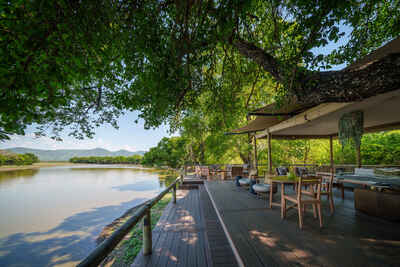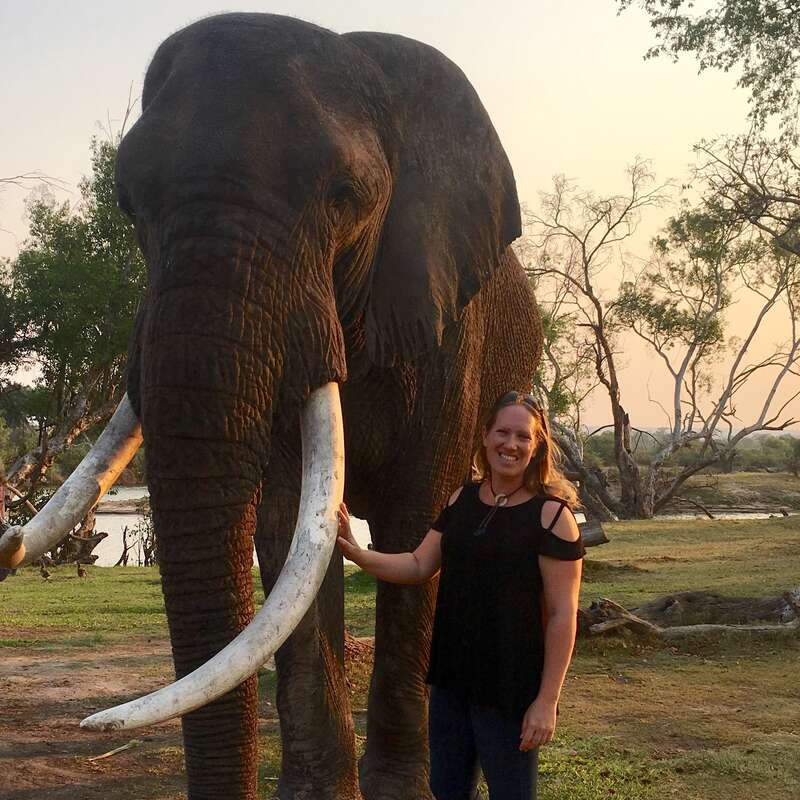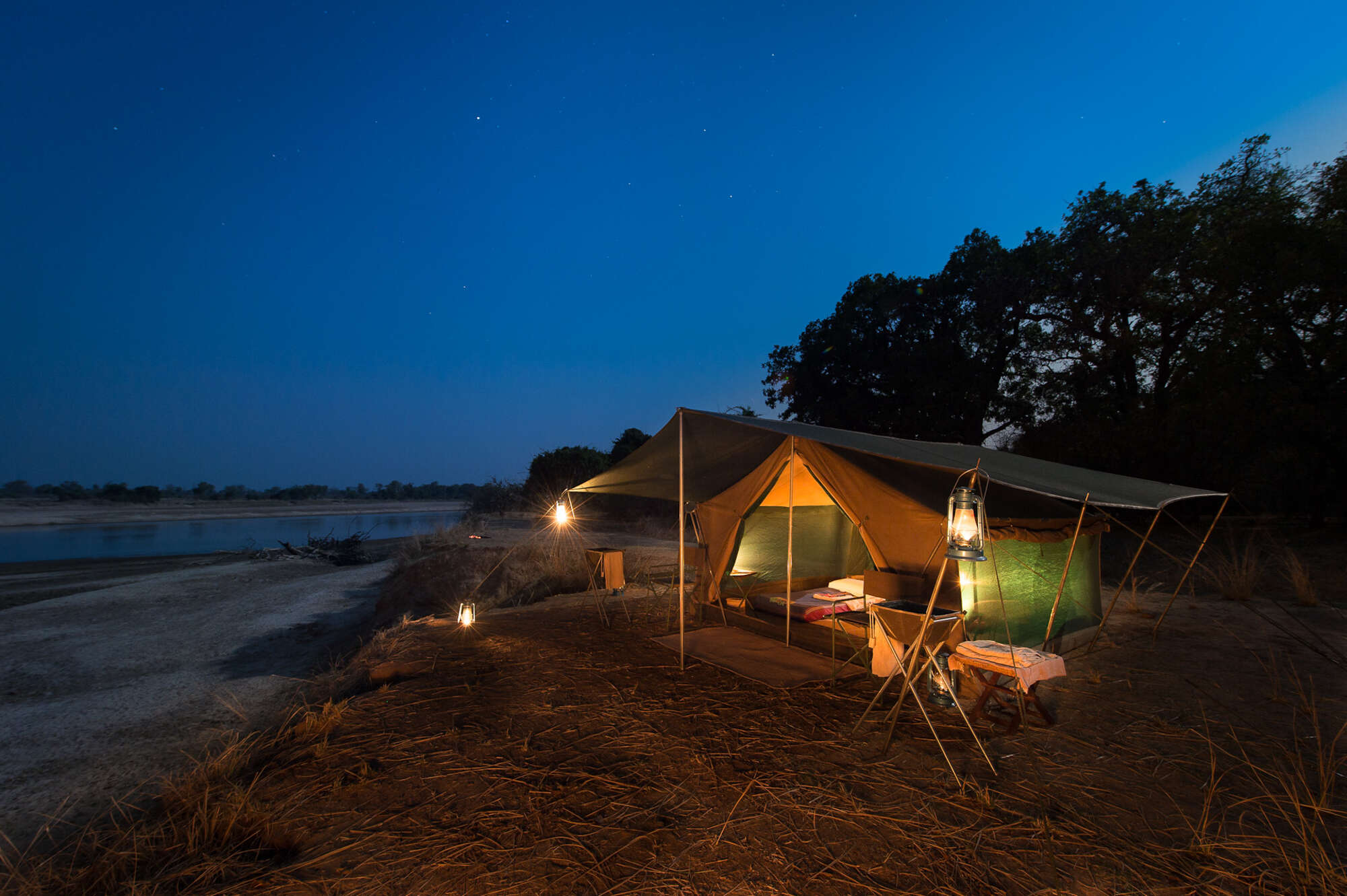About Chindeni
Located next to a large oxbow lake, Chindeni Bushcamp is one of the South Luangwa’s most luxurious and well ...
... furnished bushcamps. Under the ownership of The Bushcamp Company it underwent extensive refurbishment in 2010, and has emerged modern and minimalist in style. Those looking for something stylish and contemporary will love this camp.
Chindeni Bushcamp is beautiful, modern and minimalist with great food and guiding. It’s location provides stunning views, and some of the best game viewing from camp that you’ll find in the South Luangwa. The description ‘Afro-chic’ is very apt, but safari traditionalists may find the design a little lacking in character, and may want to opt for a more rustic bushcamp instead.
Our view
Chindeni Bushcamp is beautiful, modern and minimalist with great food and guiding. It’s location provides stunning views, and some of the best game viewing from camp that you’ll find in the South Luangwa. The description ‘Afro-chic’ is very apt, but safari traditionalists may find the design a little lacking in character, and may want to opt for a more rustic bushcamp instead.
Accommodation
4 tents
Children
Best for over-16s
Open
05 May to 01 December
Activities

4WD Safari

Birdwatching

Cultural excursion

Guided walking safari

Night drive
Traveller reviews of Chindeni
12 real, un-edited reviews from Expert Africa's travellers.
Arrived 4 Nov 2022, 4 nights
"Chindeni 4 to 8 November 2022"
Overall rating: Excellent
Arrived 3 Sep 2022, 4 nights
"Chindeni review"
Overall rating: Excellent
Arrived 28 May 2022, 2 nights
"Chindeni review"
Overall rating: Excellent
Arrived 15 Nov 2021, 3 nights
"Chindeni review"
Overall rating: Excellent
Arrived 22 Aug 2021, 4 nights
"Chindeni 3 nights 22 Aug to 25 Aug"
Overall rating: Excellent
Arrived 9 Nov 2018, 2 nights
"Chindeni review"
Overall rating: Excellent
Arrived 14 Aug 2015, 2 nights
"Chindeni review"
Overall rating: Excellent
Arrived 6 Sep 2011, 2 nights
"Chindeni review"
Overall rating: Excellent
Arrived 22 Jun 2010, 3 nights
"Slightly disappointed at Chindeni"
Overall rating: Good
Arrived 21 Jun 2010, 3 nights
"A beautiful situation and very smart bushcamp"
Overall rating: Excellent
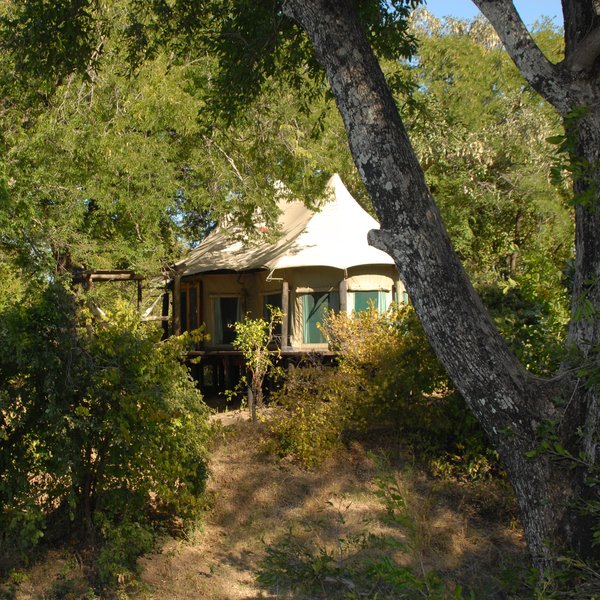
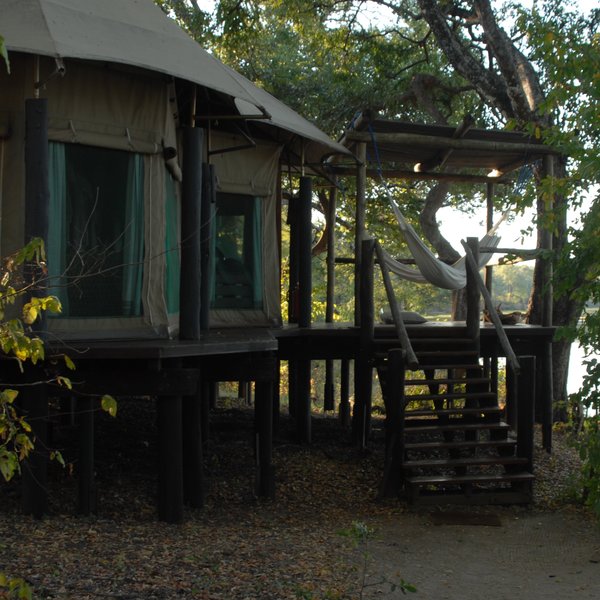
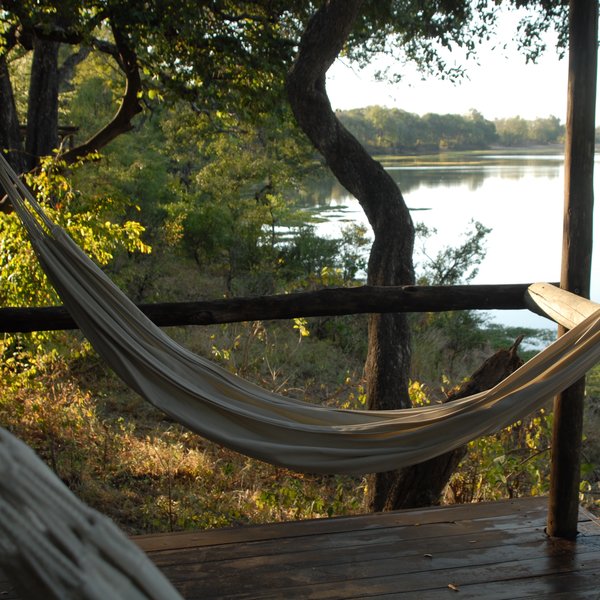
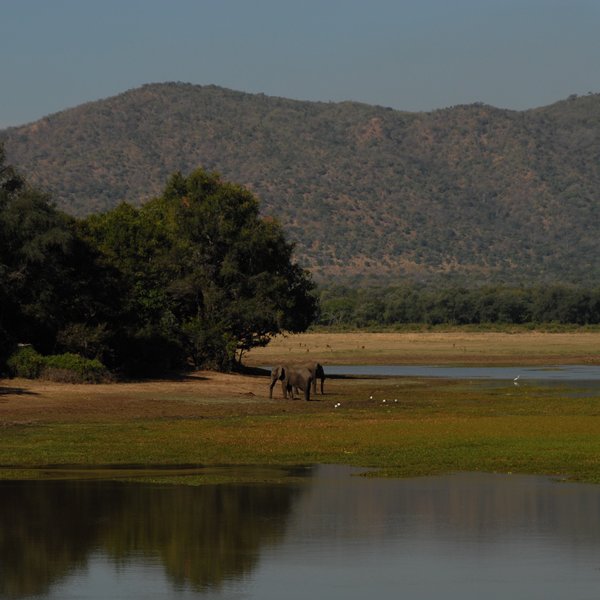
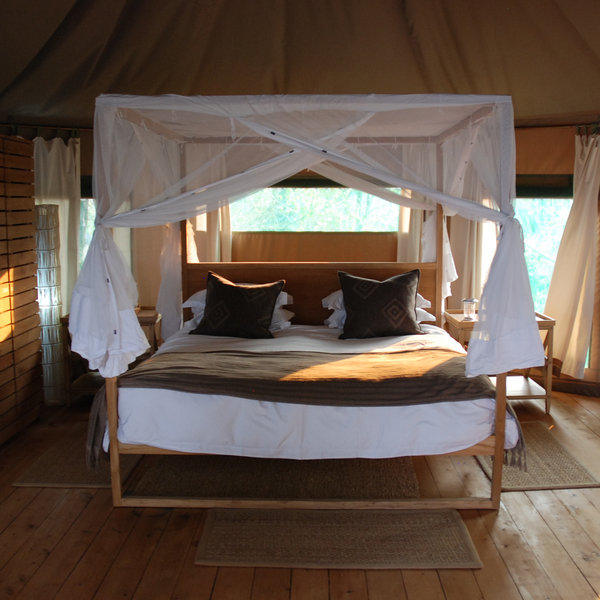
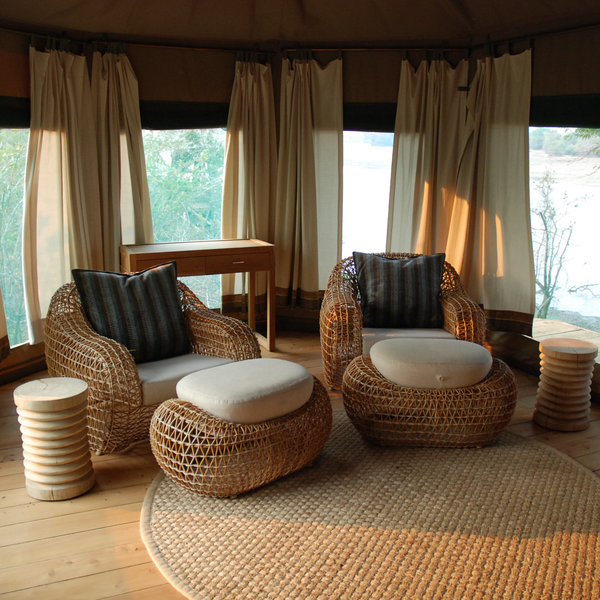
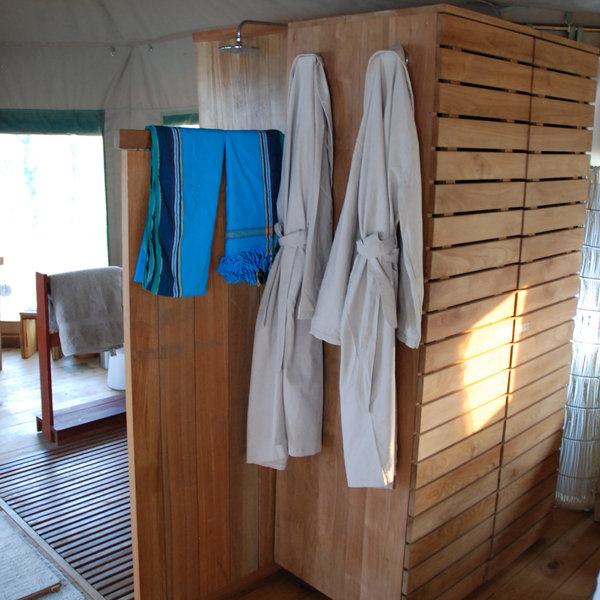
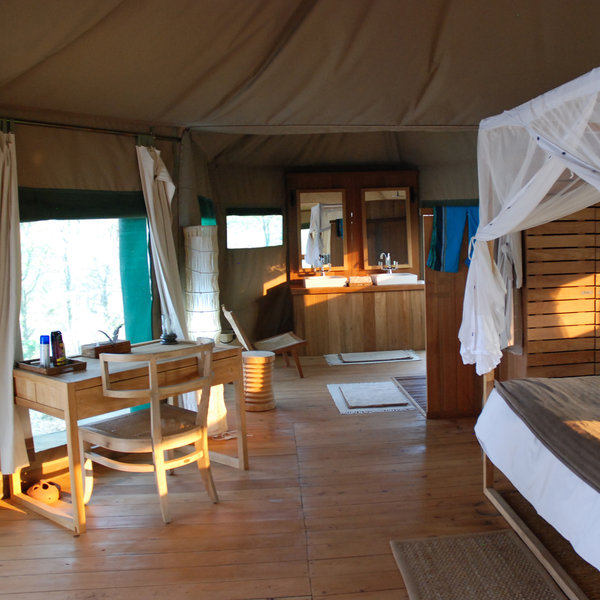
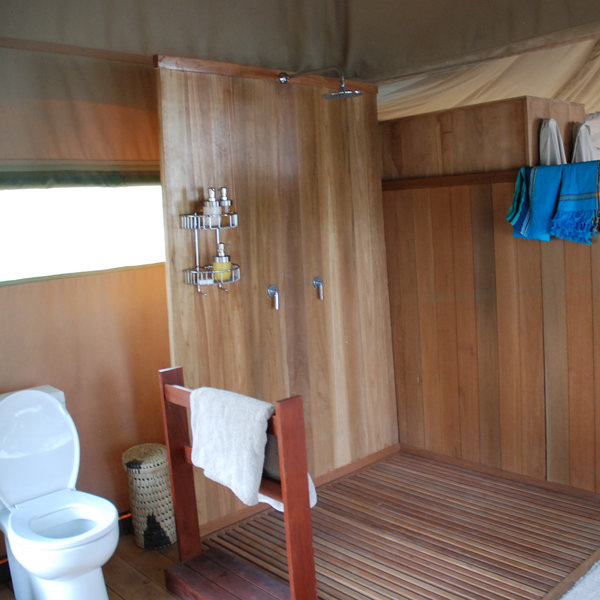
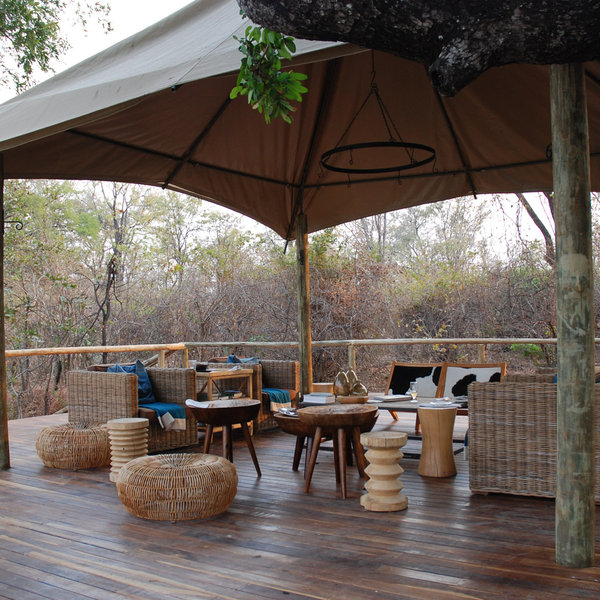
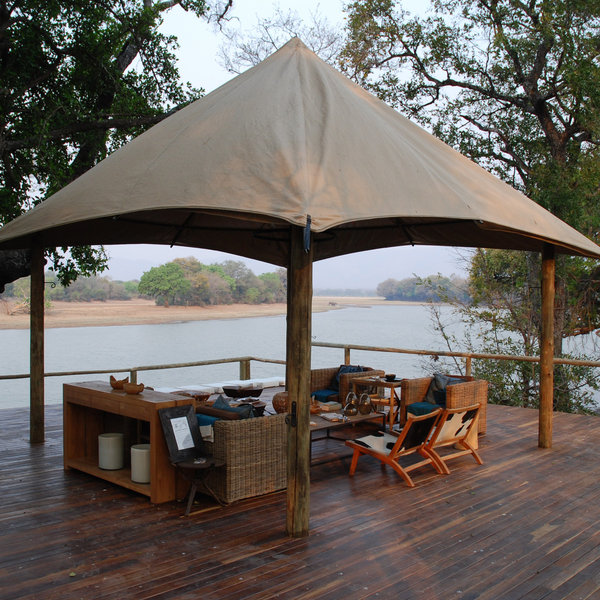
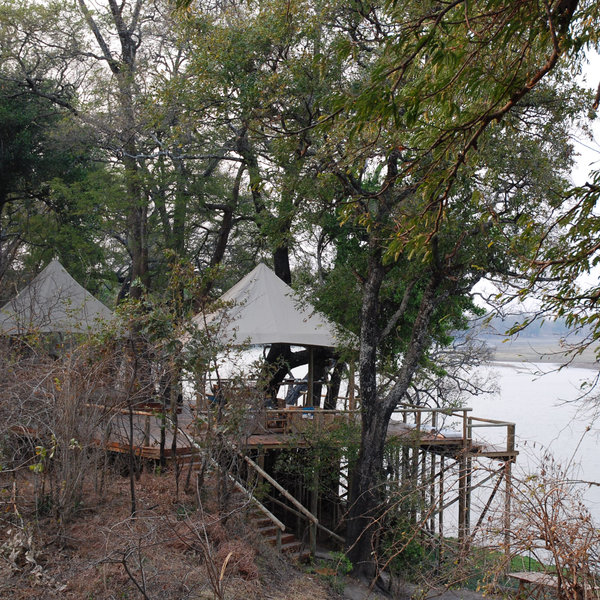
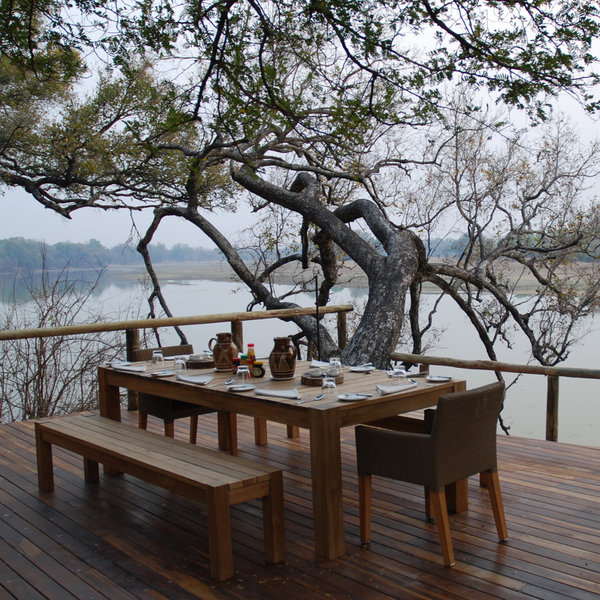
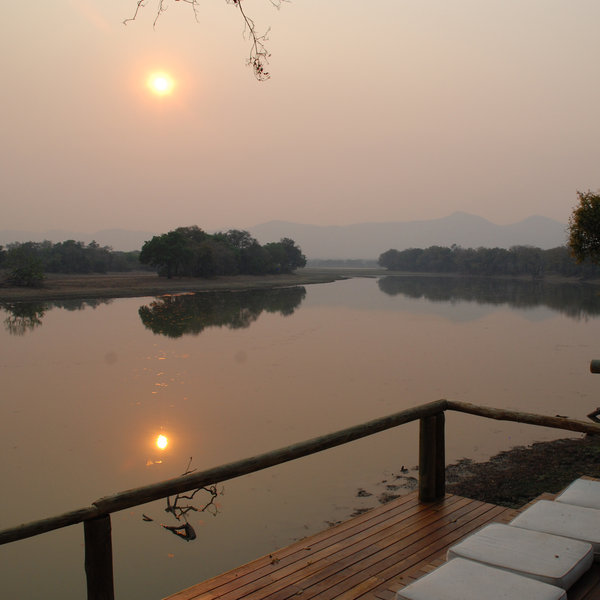
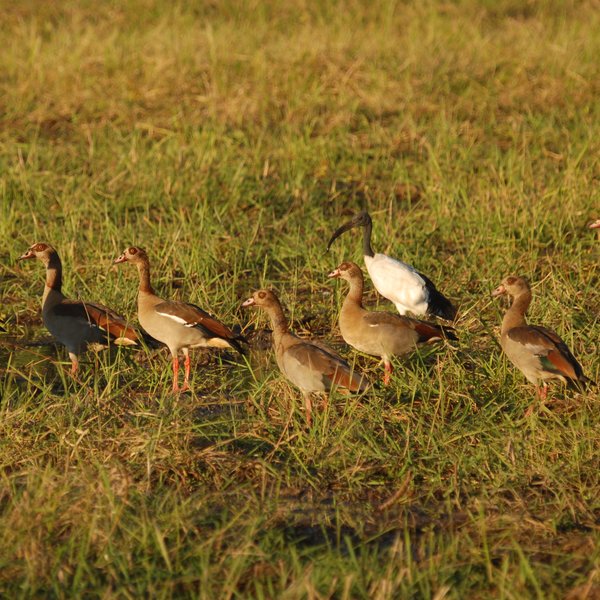
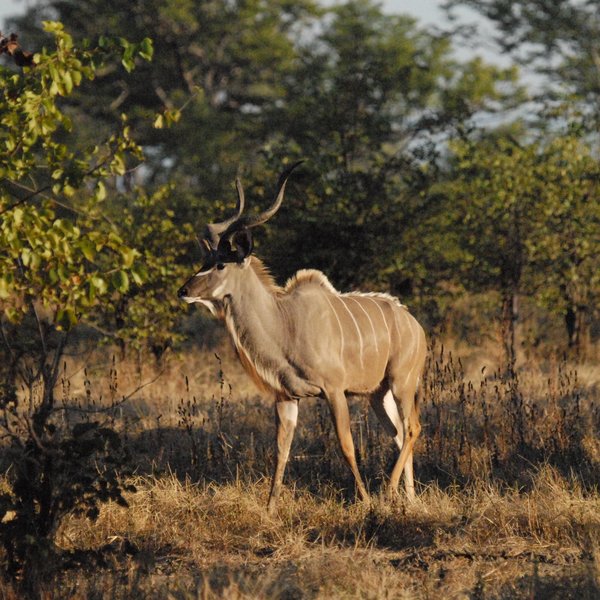
Expert Africa's gallery
When we travel we take lots of photos ourselves to give you a real and un-edited view of the safaris. See our 31 pictures and 1 videos of Chindeni to get the candid view.
View galleryChindeni: Our full report
Located next to a large oxbow lake, Chindeni Bushcamp is one of the South Luangwa’s most luxurious and well ...
... furnished bushcamps. Under the ownership of The Bushcamp Company it underwent extensive refurbishment in 2010, and has emerged modern and minimalist in style. Those looking for something stylish and contemporary will love this camp.
Chindeni is built underneath a shady grove of ebony trees overlooking Chayumba Lagoon, a large and productive oxbow lake that is often teeming with wildlife, with the towering Chindeni hills as an impressive backdrop.
The shared area consists of a sturdy split-level deck overlooking this lagoon, with the upper tier shaded by a suspended canvas roof. Under this there’s a large pine table where guests dine communally for lunch and dinner, although meals can also be taken on the lower level, out under the sky. The lower level also houses a lounge with low wicker armchairs, and deckchairs made from cow-hide. Dotted around are a variety of handmade side tables and stools, hand-blown glass vases and brass bowls. Though none of this matches as such, all are very stylish and simple, so work together really well.
There is also a small but well-stocked bar at Chindeni Bushcamp and though there is usually someone around to assist, guests are welcome to help themselves.
Chindeni’s four tents are built on raised wooden platforms, with the bedroom and the bathroom incorporated in one large open-plan area. Two of the rooms have twin beds and two have a king-sized, four-poster bed; all shrouded in mosquito netting. At one end of the room is a lounge area with stylish wicker armchairs and footstools. At the other is a lovely pale wood wardrobe for hanging clothes, and a writing desk. A wooden platform extends from the front of the tents where two hammocks are suspended, overlooking the lake. Animals are often drawn to this water, particularly towards the end of the dry season, and you’ll often be able to see as much wildlife during the afternoon from camp as you will on your morning and evening activities. Our favourite sighting from camp on our last visit in 2015 was a large family of elephants crossing the lake, and having a mud bath on the opposite shore.
In the bathroom, a range of toiletries are provided. There are twin sinks, a flush toilet and hot-and-cold rain-shower. The fittings are all very modern and of excellent quality.
The tents are certainly very stylish and beautiful, and thoughtful touches like kikois (an African sarong) and bathrobes make them extremely comfortable. However, we felt that the juxtaposition of the pale wood and modern fittings in such a remote and natural environment could be slightly jarring. Those who love contemporary style and an extra level of comfort while on safari will really enjoy the tents; those who prefer traditional bushcamps may like them less, and may prefer to stay in one of Bushcamp Comapy’s more rustic camps in the area such as Chamilandu or Kuyenda.
There are two activities a day at Chindeni, usually consisting of a morning walk, and an afternoon game drive that often extends into a night drive. There is flexibility with these arrangements though should you wish to change the order or make-up of your activities. On both of these activities you’ll explore the remote surrounding area, where the wildlife is good and there are very few other vehicles around. On our last visit in June 2015 we were able to spot leopard, hyena, giant kingfishers, porcupines and even the elusive aardvark on an evening drive, all without seeing another safari vehicle.
We also particularly enjoyed our morning walk where our guide taught us how to tell an elephants gender from its dung, which vines in the area you can get clean drinking water from and showed us some of the smaller animals in the bush, such as a ground beetle fighting a large spider. For those who are really keen on walking you can do a walking transfer to Chindeni’s sister camp Bilimungwe, a walk that takes approximately four hours.
Geographics
- Location
- South Luangwa National Park, Zambia
- Ideal length of stay
- A very usual trip would be to combine Chindeni with a series of its sister camps: Kuyenda, Kapamba, Chamilandu and Bilimungwe.
However, for more variety we'd suggest that you consider combining Kapamba, and perhaps one of its sister camps, with some of the camps on the northern side of South Luangwa – perhaps Tafika, Kaingo or even the similarly luxurious Lion Camp. - Directions
- It is a one-hour flight from Lusaka to Mfuwe airport, then a three-hour drive to Chindeni which is in the more remote south part of South Luangwa National Park.
- Accessible by
- Fly-and-Transfer
Food & drink
- Usual board basis
- Full Board & Activities
- Food quality
- When we were last at Chindeni Bushcamp in June 2015, we thought the food was the best of all the Bushcamp properties that we visited!
Breakfast was a light continental offering with porridge, cereals, fruit and toast. Tea and coffee was also available.
After our morning activity we returned to a brunch of wraps for which we were able to choose our own fillings from a choice of beef, chicken, onions, peppers, mushrooms, cheese, salad, hummus and guacamole. There was also a large pile of fresh and incredibly sweet watermelon for dessert.
There is usually an afternoon tea at 4.00pm with some very tasty, homemade, orange muffins.
Dinner is usually served around 8.30pm, after your evening activity. We started with a spicy and rich butternut squash soup that we very much enjoyed. As a main we had fried talipea, caught from Lake Kariba, with rice, green beans and braised red cabbage. For dessert we then had a very light and fluffy chocolate mousse. - Dining style
- Group Meals
- Dining locations
- Indoor and Outdoor Dining
- Further dining info, including room service
- No
- Drinks included
- Most drinks are included, apart from champagne and specially imported wines and spirits.
Special interests
- Birdwatching safaris
- A mixture of miombo woodland, riverine forest and plentiful lagoons means there is varied and prolific birdlife, making the area a great spot for birdwatching in Zambia. On our last visit we saw juvenile saddle-billed storks, several kingfisher species and numerous waterfowl.
- See ideas for Birdwatching safaris in Zambia
Children
- Attitude towards children
- Children over the age of 12 are accepted
- Property’s age restrictions
- Children under 12 years of age are not allowed at Chindeni, unless the whole camp is booked out by a family. No children under the age of 12 are allowed to walk in the park.
- Special activities & services
- No
- Generally recommended for children
- No – we can't recommend this camp for children under 16 years.
Our travellers’ wildlife sightings from Chindeni
Since mid-2018, many of our travellers who stayed at Chindeni have kindly recorded their wildlife sightings and shared them with us. The results are below. Click an animal to see more, and here to see more on our methodology.

100% success

100% success

100% success

83% success

83% success

83% success

83% success

67% success

33% success

0% success

0% success

0% success

0% success

0% success

0% success
Communications
- Power supply notes
- There are no plug points in the rooms but electronics can be given to the manager for charging. In the event of several cloudy day, charging facilities may be limited, or charging could take longer than normal.
- Communications
- You should consider yourself out of contact during your stay at Chindeni; there is no mobile/cell-phone reception or email at the camp. However there is radio communication with Mfuwe Lodge for emergencies.
- TV & radio
- No
- Water supply
- Borehole
- Water supply notes
- The showers and handbasins are plumbed in. Water is solar-heated so it may take a few minutes to reach your shower. Each chalet has a flushing toilet. The water from the taps is suitable for drinking, but bottled water is also available if you prefer.
Health & safety
- Malarial protection recommended
- Yes
- Medical care
- The closest doctor is based at a camp by the Mfuwe Gate – which is about three hours' drive away. For serious medical emergencies Chindeni has links to flying doctors, who can evacuate patients to a hospital in Lusaka.
- Dangerous animals
- High Risk
- Security measures
- A watchman or manager will escort guests between their rooms and main areas at night, in case of wild animals. Each room has a digital safe for valuables.
- Fire safety
- There are fire extinguishers in each room and around the main areas.
Activities
4WD Safari
Birdwatching
Cultural excursion
Guided walking safari
Night drive
Extras
- Disabled access
- Not Possible
- Laundry facilities
- Laundry is included and clothes are hand washed, line dried and coal ironed. For this reason, Chindeni asks guests to wash their delicates themselves – and provide soap for this in the rooms.
- Money
- No currency exchange is available. There are no safes in the rooms, but if you are concerned then small items could be given to management for safe keeping.
- Accepted payment on location
- Chindeni Bushcamp is not able to take payment for any extras. Payments (eg: for extras such as champagne) are made at Mfuwe Lodge.
At Mfuwe Lodge you can use cash in US dollars, euros, British pounds and Zambian kwacha. Visa and MasterCard are also accepted – though with an additional charge of 5%.
Plan and book your trip with Expert Africa
All of our trips are tailor-made, so we'll always adapt them to suit you. Talk to an Expert and let us plan and arrange your perfect trip.

Talk to an Expert
Call or email us now! We’ll match you with the Specialist in our team who is best suited to help you. Then together we can start planning your trip.

Set up your itinerary
Based on our experience and your ideas, your specialist will create a detailed, costed itinerary. We’ll refine it together, until we have a trip that you’re perfectly happy with.

Prepare for your trip
The same Specialist will make the seamless arrangements for your trip, send you detailed travel documents, and be available to answer any questions before you depart.

Travel with peace of mind
After you set off, you’ll be cared for by our partners in Africa, most of whom have worked with Expert Africa for decades. And if you ever need us urgently, we’re available 24/7.

When you return
We love to learn about your trip, and so will always be grateful if you’ve the time to give feedback to your Specialist when you return.
Chindeni's location
Look closer at the environment and surroundings of Chindeni.
Excursions from Chindeni
Optional extra day-trips and excursions possible whilst you're staying at Chindeni. Talk to us: these are usually best arranged before you go.
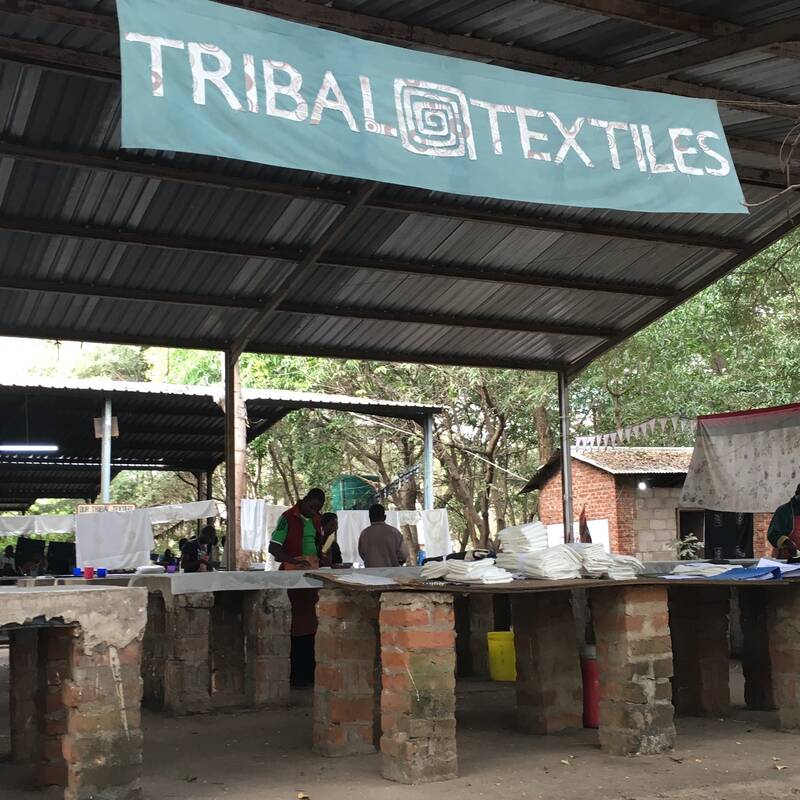
Tribal Textiles Tour
One - two hours
Visit the Tribal Textiles workshop, where hand-painted textiles are produced by more than a hundred local people. The workshop is close to Mfuwe Airport, so is ideally placed for a stop en route to/from the South Luangwa. With products ranging from cushion covers to bags and T-shirts, it's a great place for souvenir shopping while at the same time supporting the local community.
More about Tribal Textiles TourOther lodges in South Luangwa National Park
Alternative places to stay in this same area.
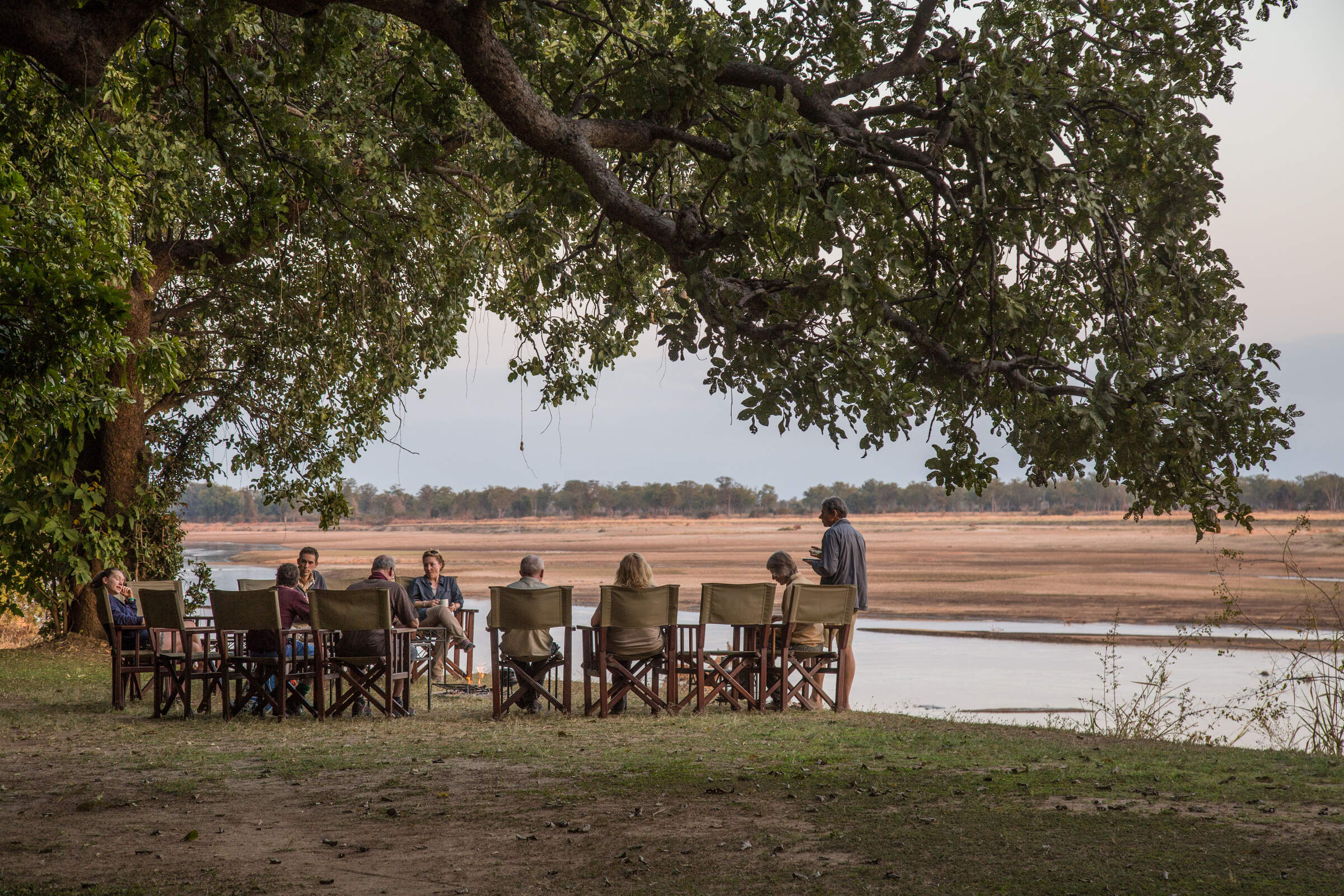
Tafika
One of the best camps in Zambia, Tafika is naturally built, combining excellent service and food with top guiding skills for a superb wildlife experience.
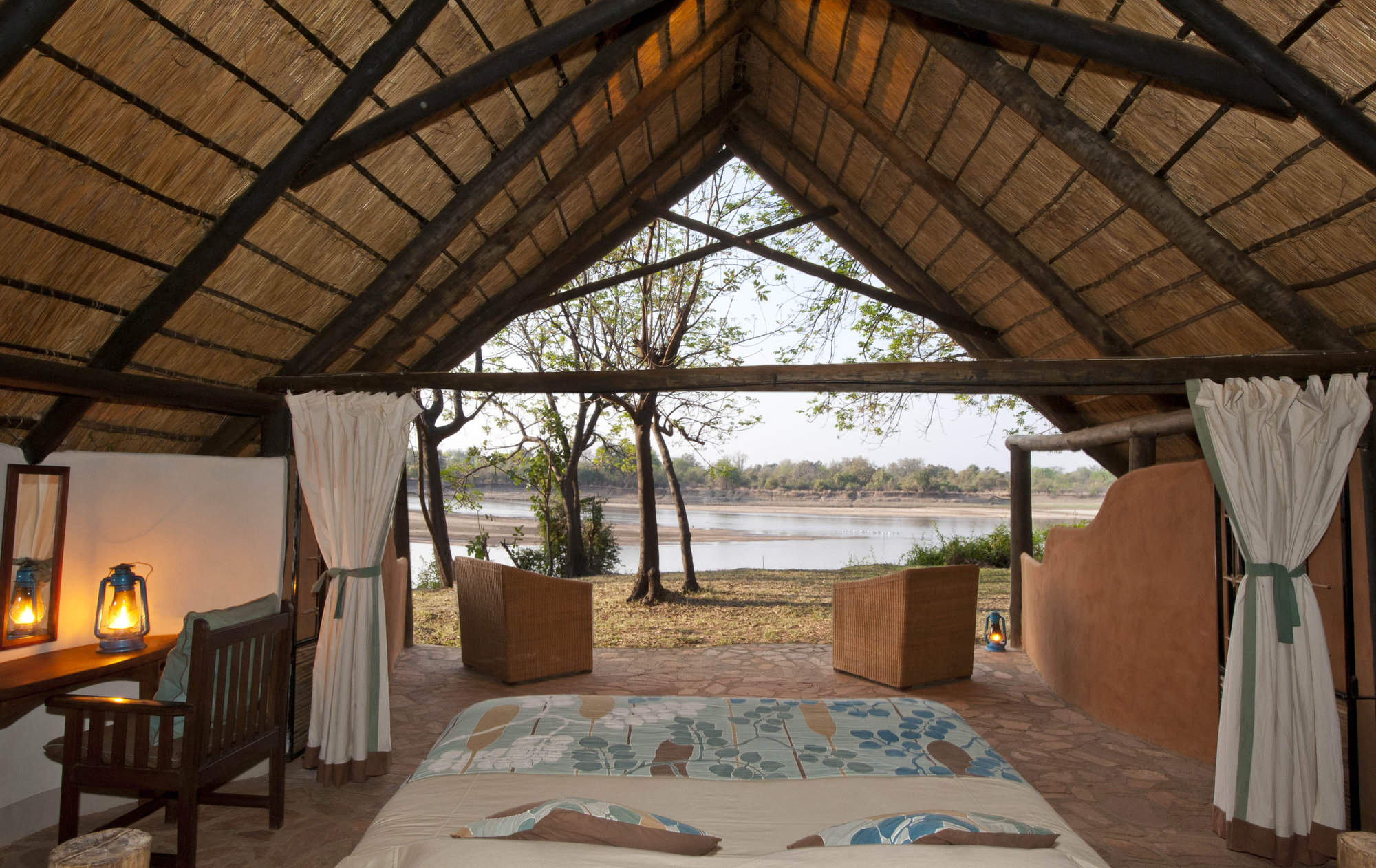
Nkwali
On the banks of the Luangwa River, with its own access to the national park, the intimate Nkwali is open year round.
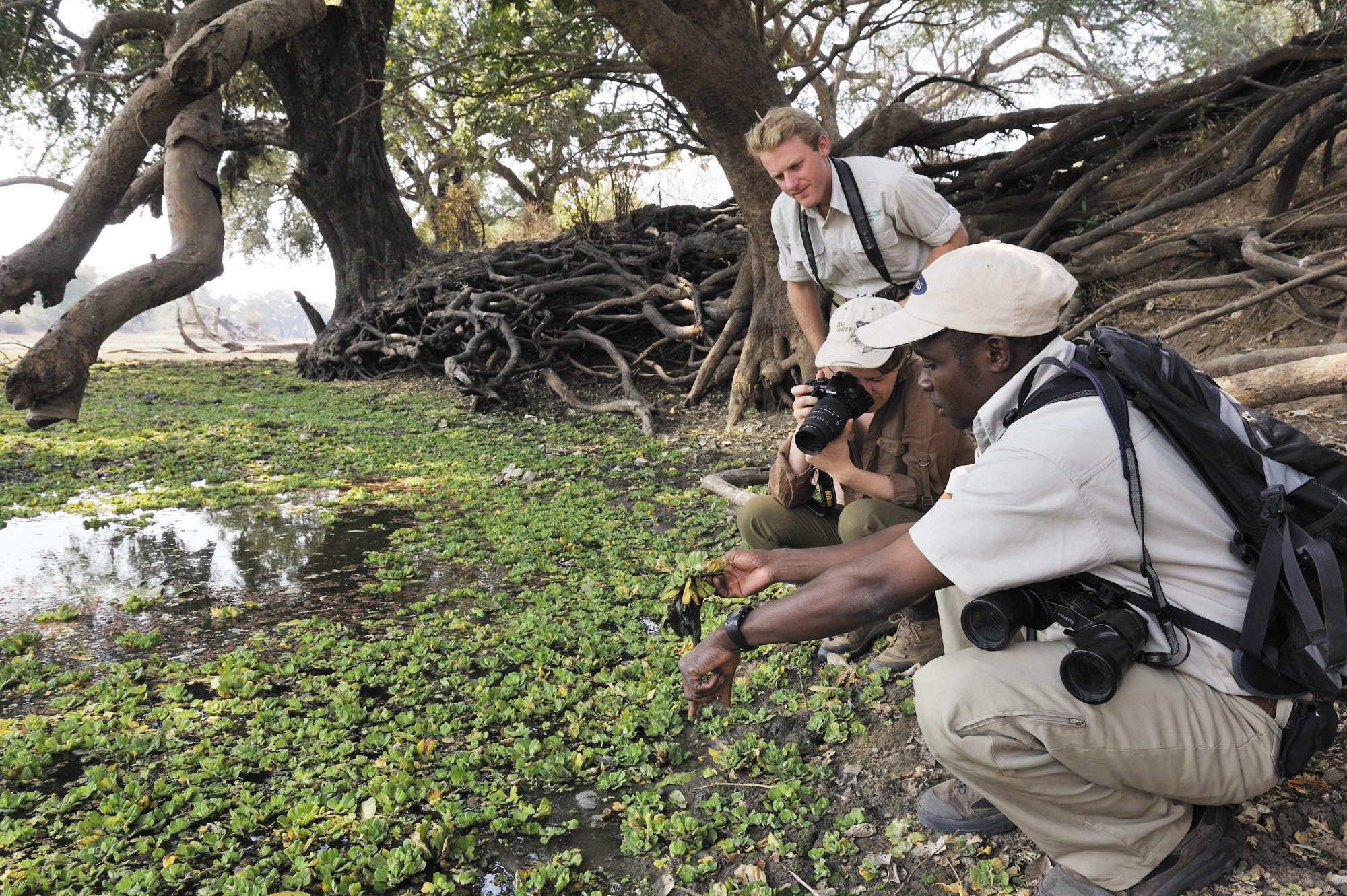
Kaingo Camp
Small and owner-run, the riverside Kaingo occupies a a quiet but excellent game area, with a series of wildlife hides and a focus on photography.
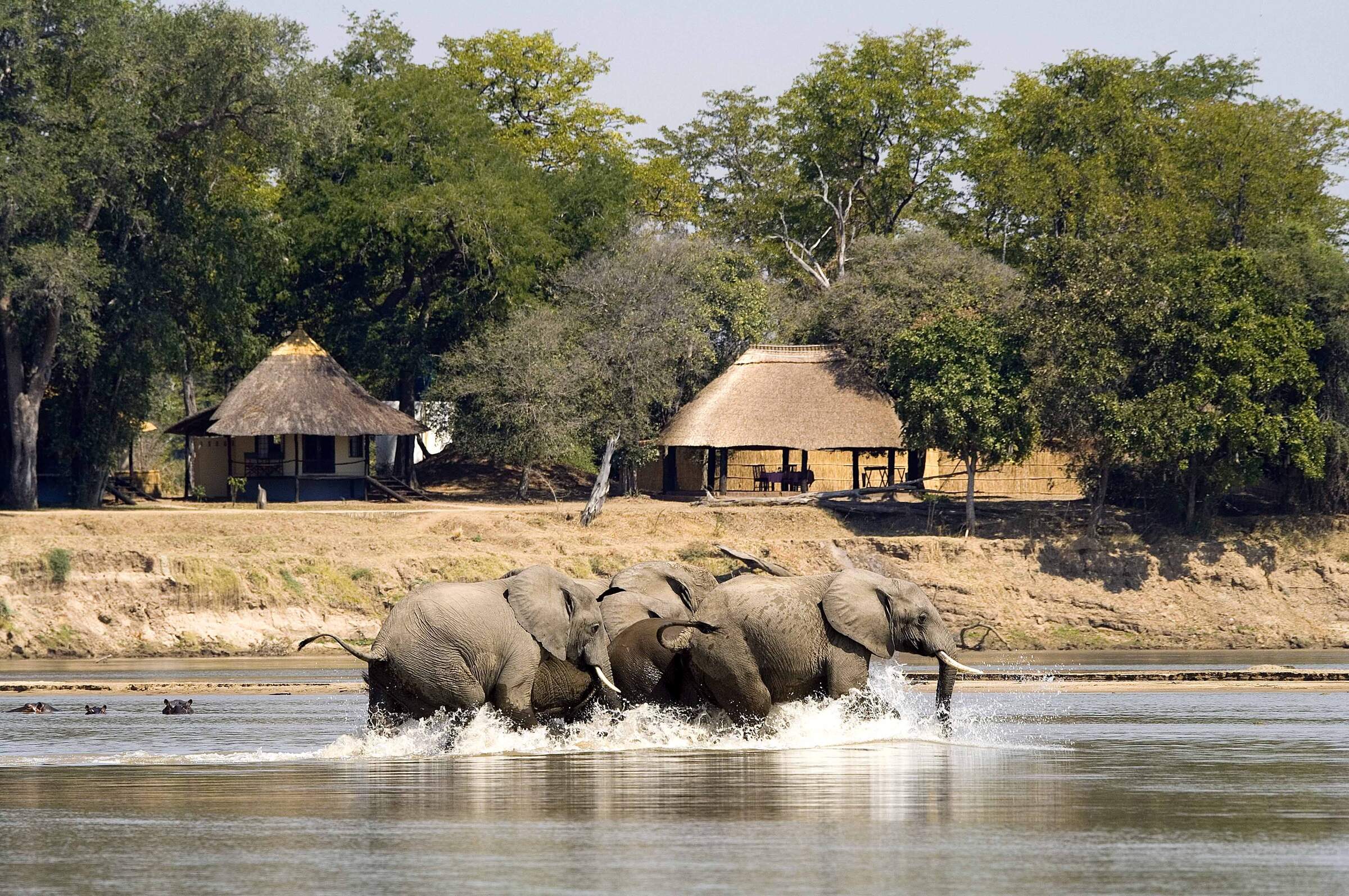
Nsefu
One of the Luangwa's oldest camps, Nsefu is a great safari camp in a remote, beautiful and game-rich location with top-rate guiding.
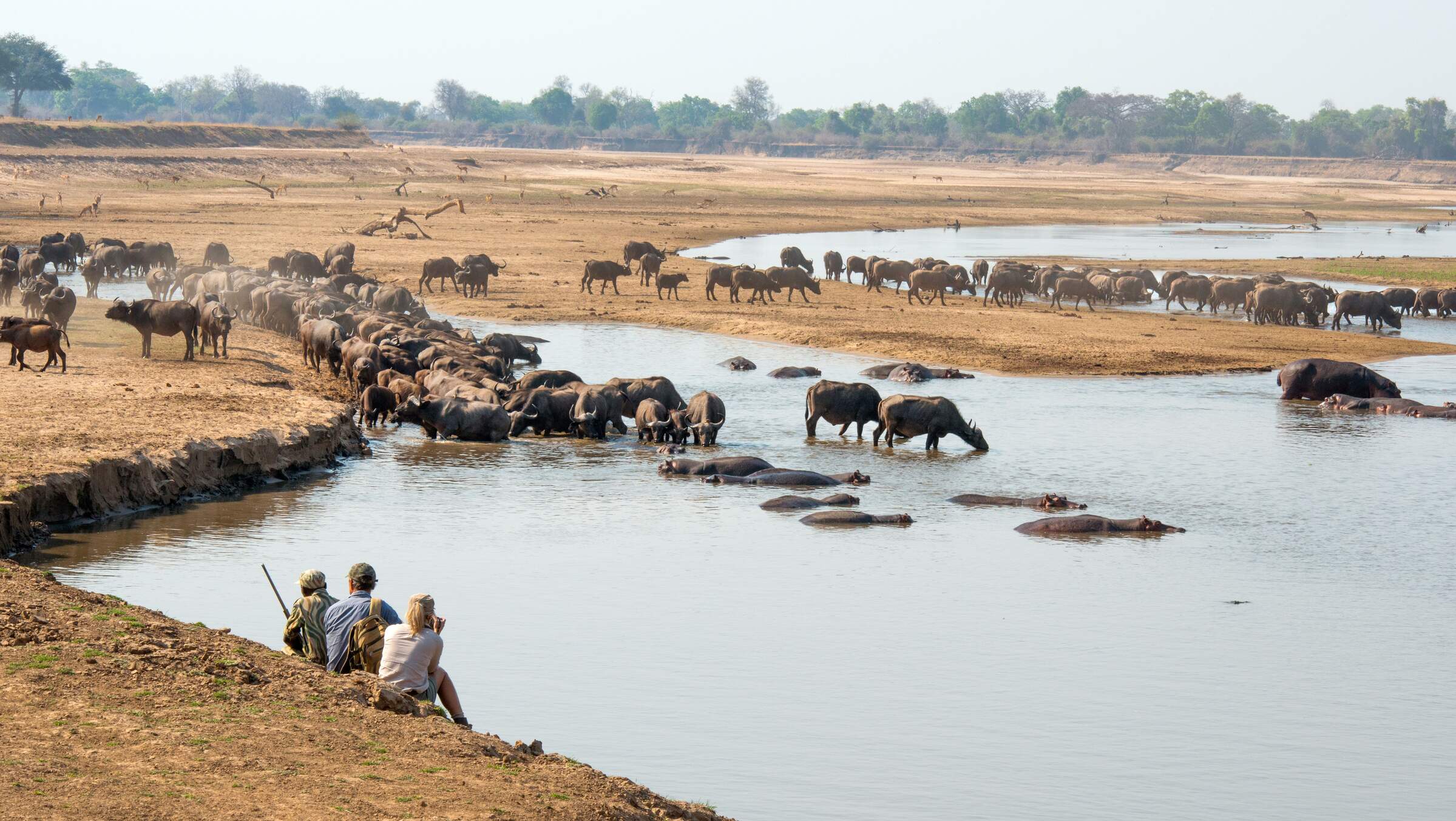
Mwamba Bushcamp
Small, remote and owner-run, Mwamba offers first-class walking, 4WD safari drives and superb hides, with excellent guides and a real bush feel.
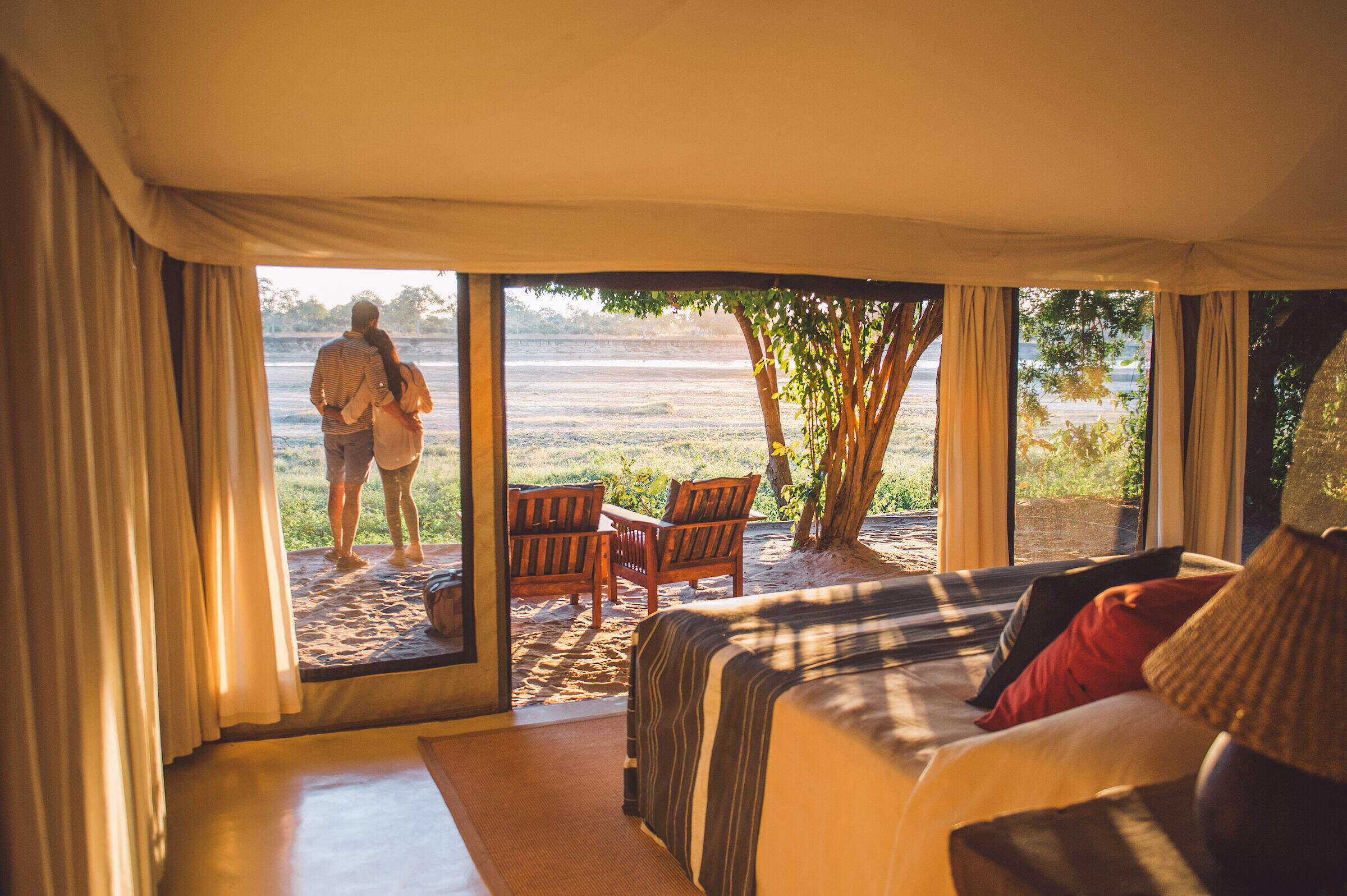
Tena Tena
One of the Luangwa's best camps, in a beautiful, remote bush location, Tena Tena is very small, exceedingly well-run and has top-rate guiding.
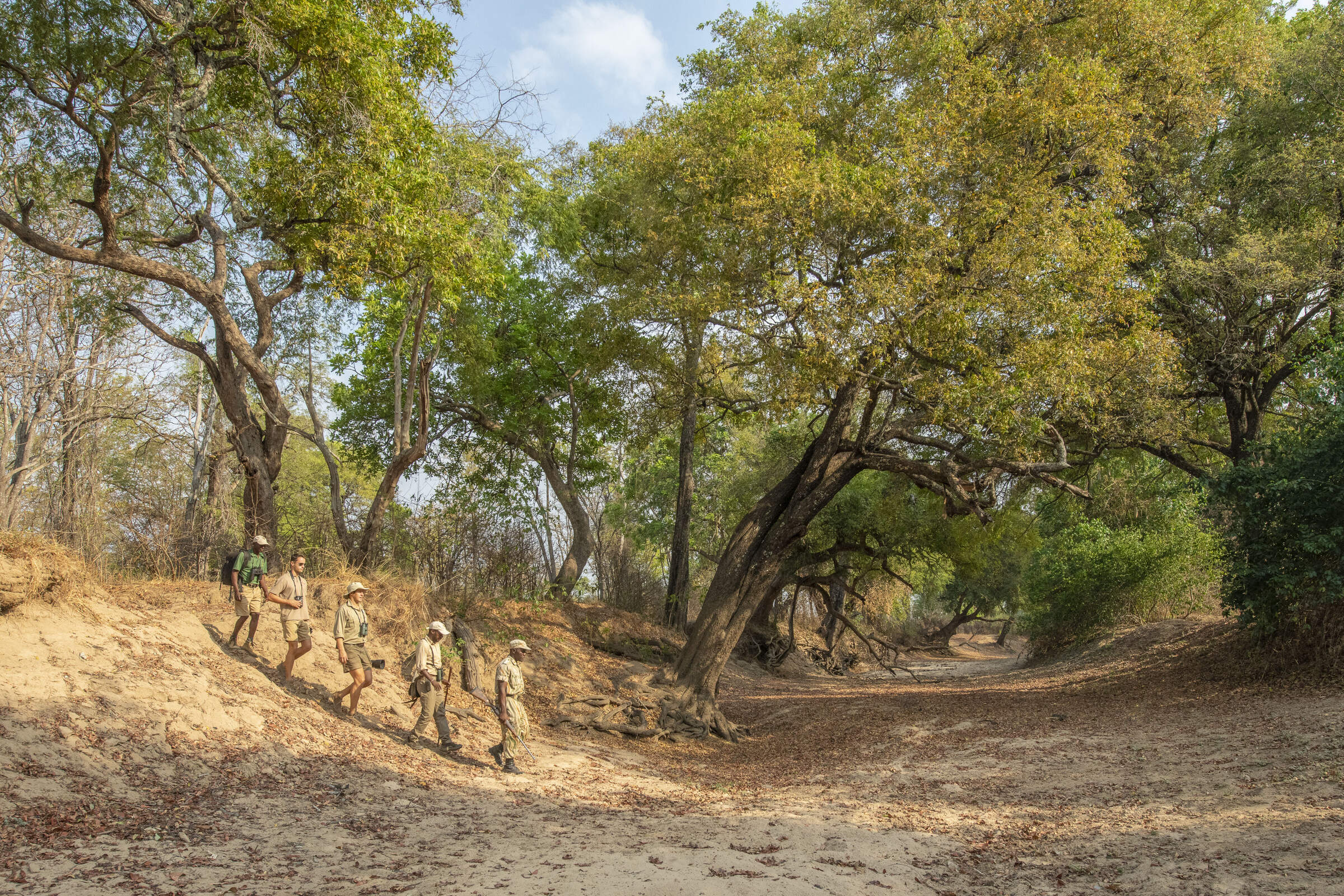
Chikoko Tree Camp
Chikoko Tree Camp is an excellent small, rustic bushcamp that concentrates on walking safaris, and is run by a top-quality operation.
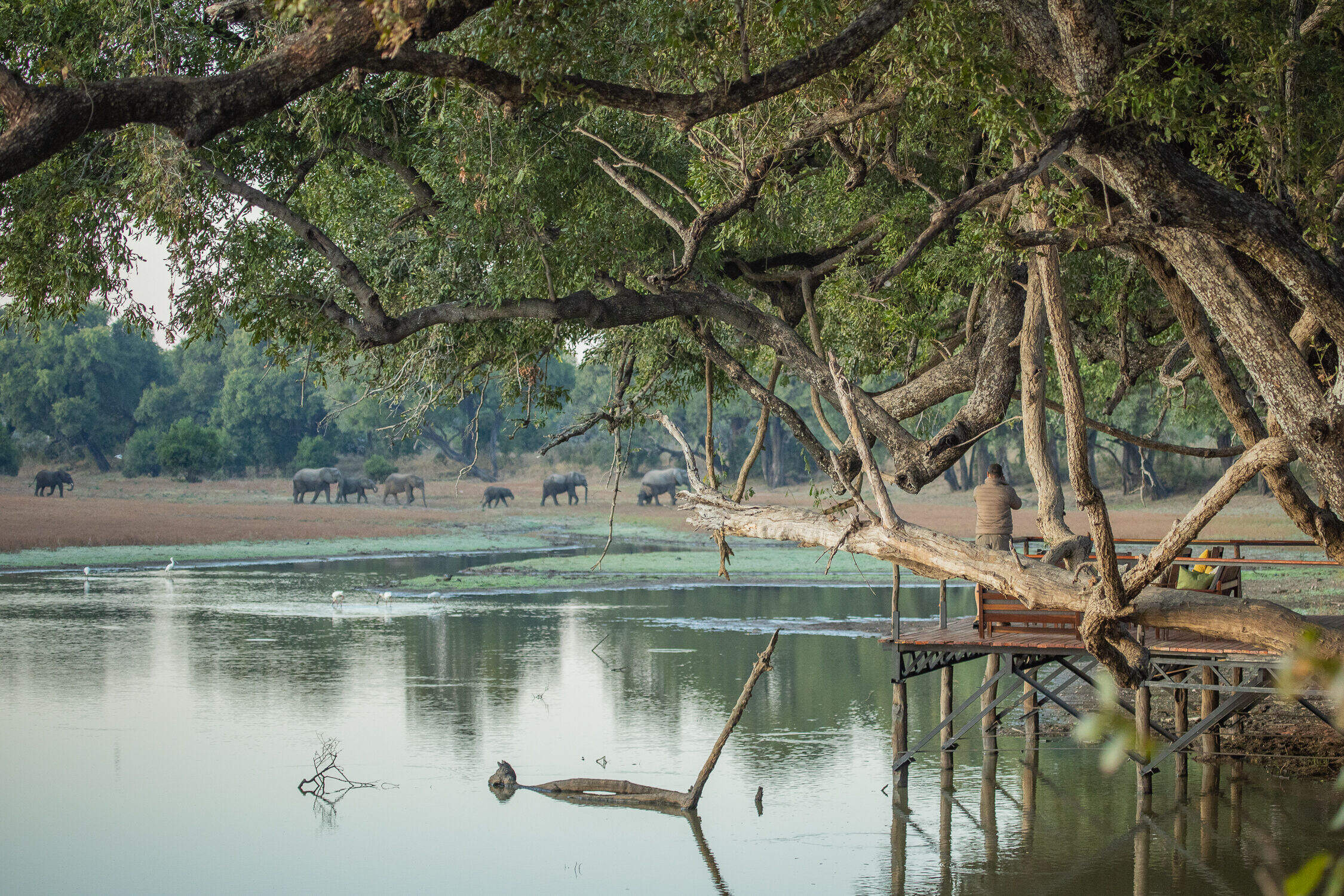
Big Lagoon Camp
Big Lagoon Camp is a great little rustic bushcamp built to high standards that focuses on excellent walking safaris, with the emphasis on top wildlife guides.
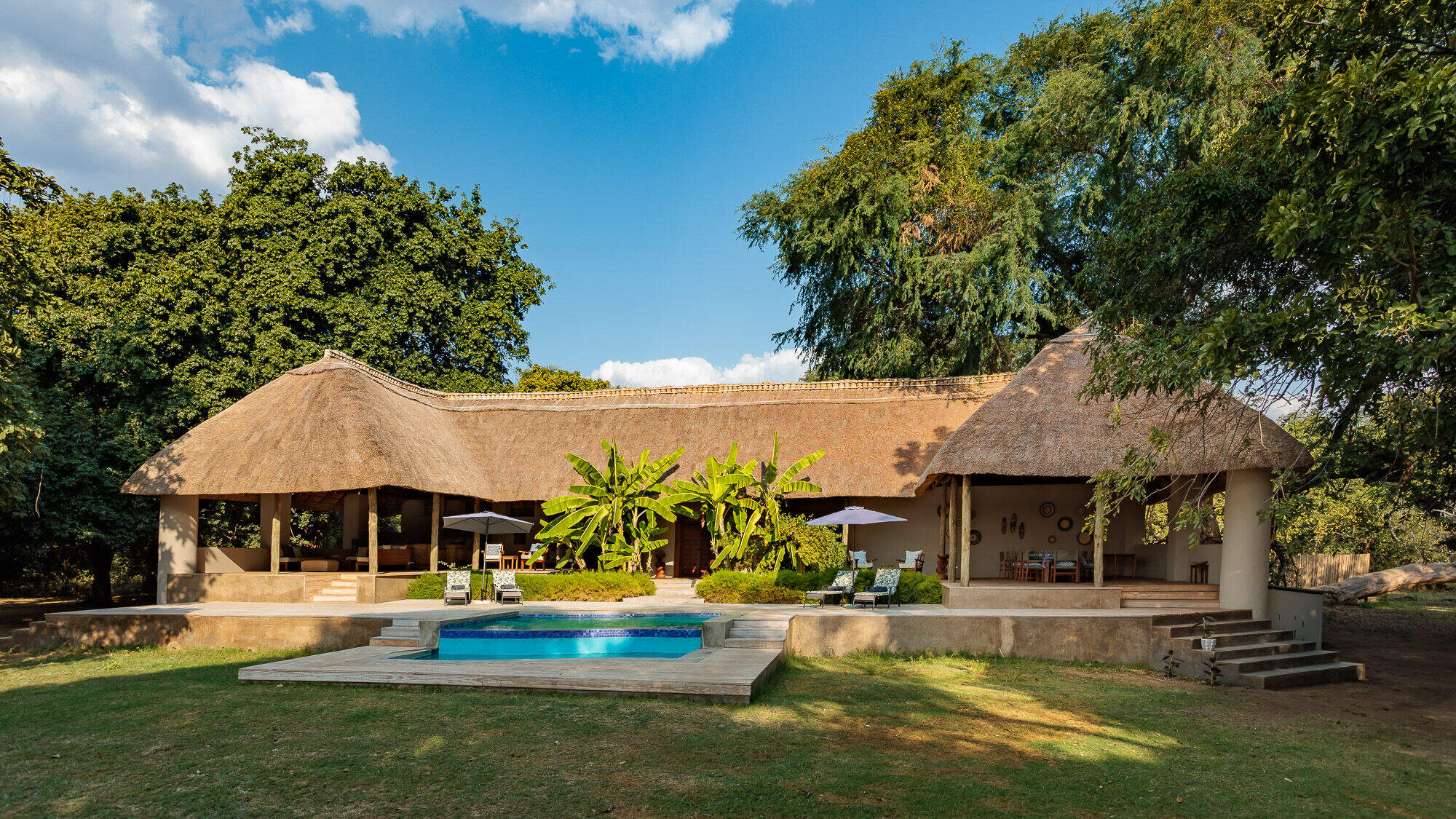
Luangwa River Camp
Luangwa River Lodge is a small and consciously stylish lodge in the Mfuwe area, overlooking the Luangwa River and the South Luangwa National Park beyond – an area renowned for great game.
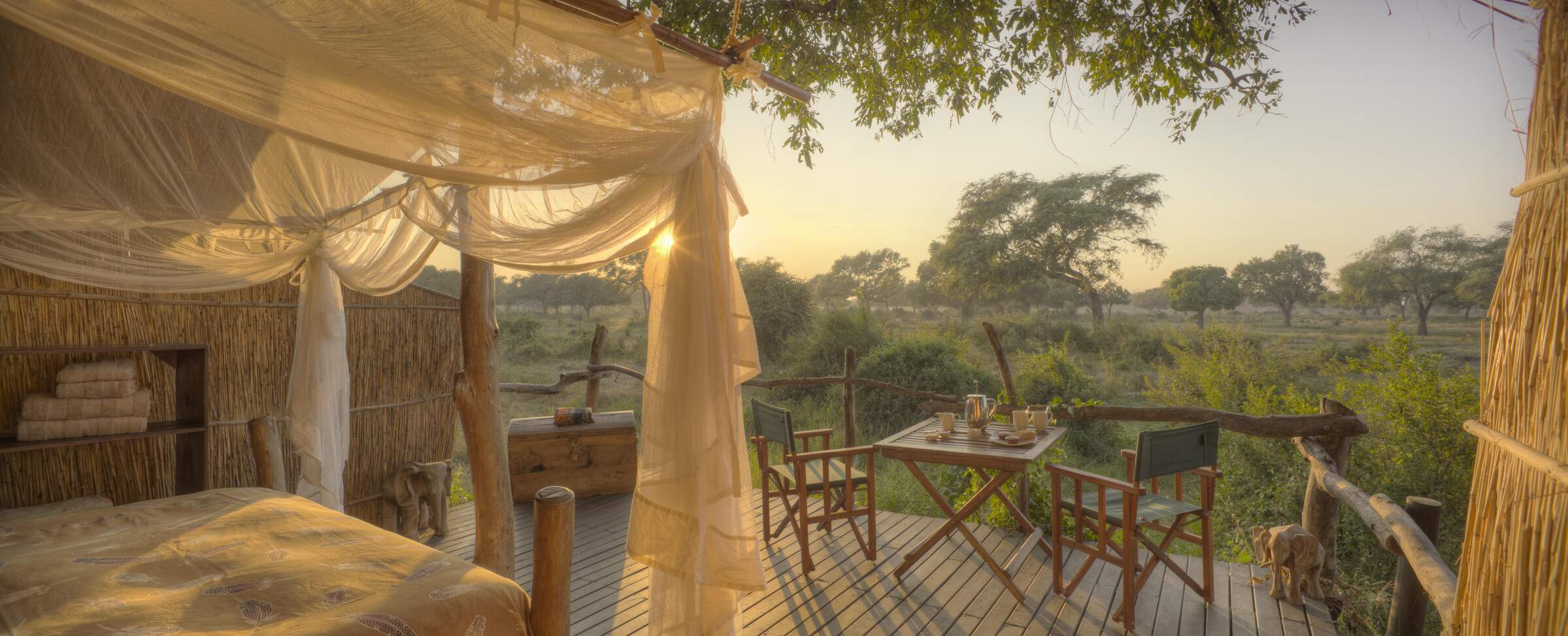
Flatdogs Camp
A relatively big safari camp, Flatdogs offers value for money with great guiding and good food in a comfortable, relaxed setting.
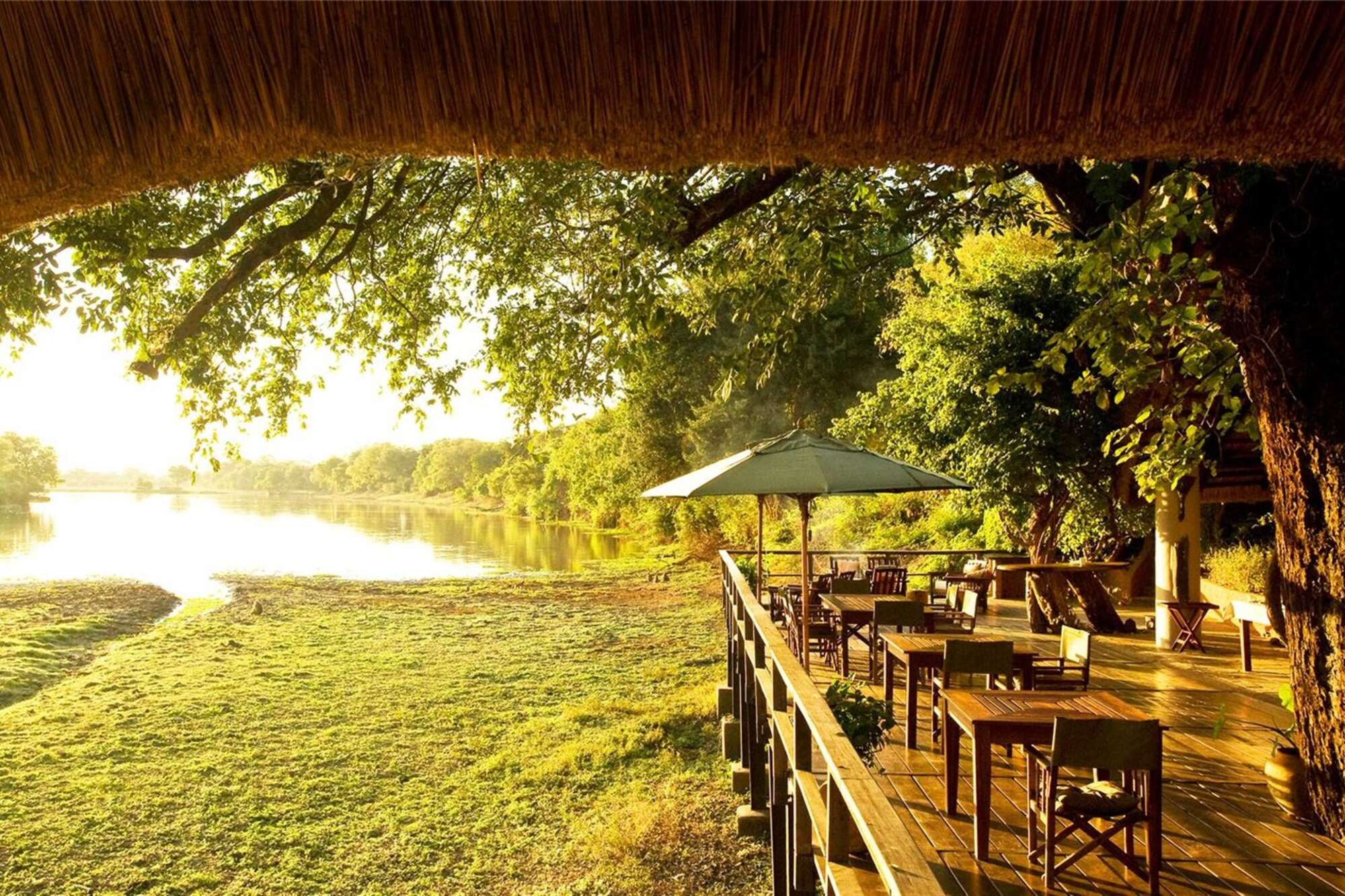
Kapani Lodge
Kapani Lodge is now the main office base for Norman Carr Safaris, one of the Luangwa's oldest safari operations.
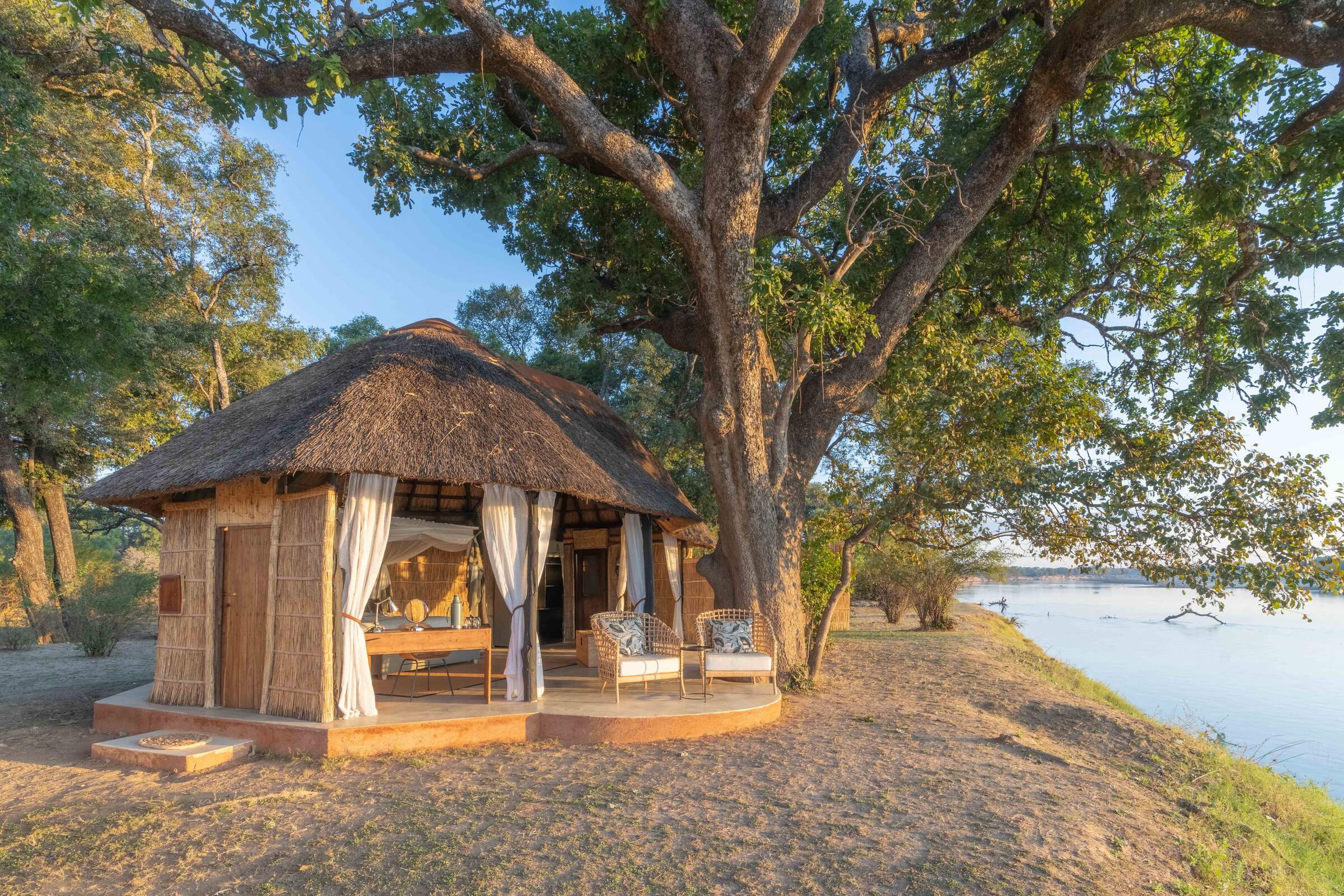
Mchenja Bushcamp
Set in a shady ebony grove on the banks of the Luangwa, Mchenja is a smart tented bushcamp. It combines well with Kakuli and Nsolo – its sister camps with a focus on walking safaris.
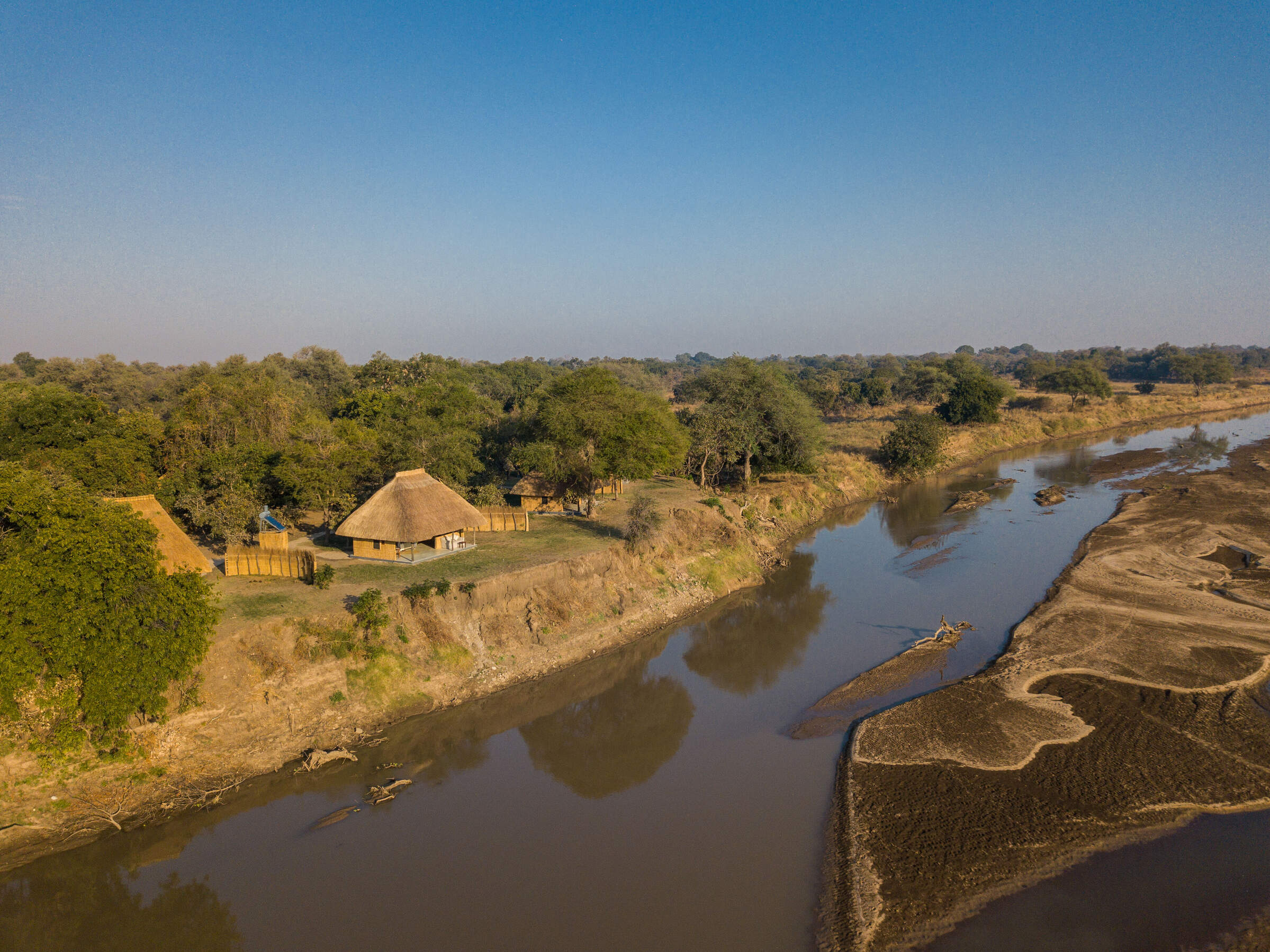
Kakuli Bushcamp
Beside the Luangwa River, Kakuli is a comfortable tented bushcamp offering 4WD safaris and walking safaris – the best of which are camp-to-camp walks linking Kakuli with its nearby sister camps.
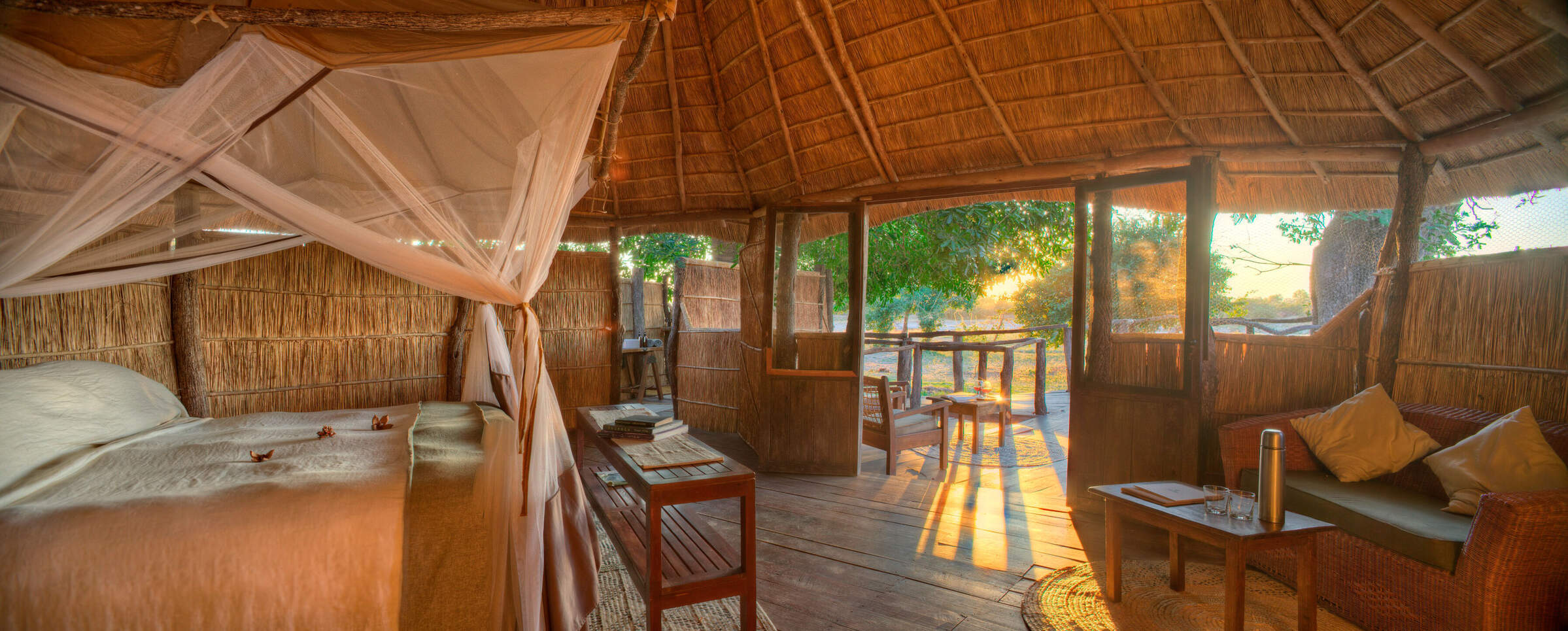
Nsolo Bushcamp
Nsolo is a small, comfortable bushcamp overlooking one or two pools in the usually dry Luwi riverbed. It concentrates on walking safaris in an interesting and diverse area, led by a knowledgeable guide.
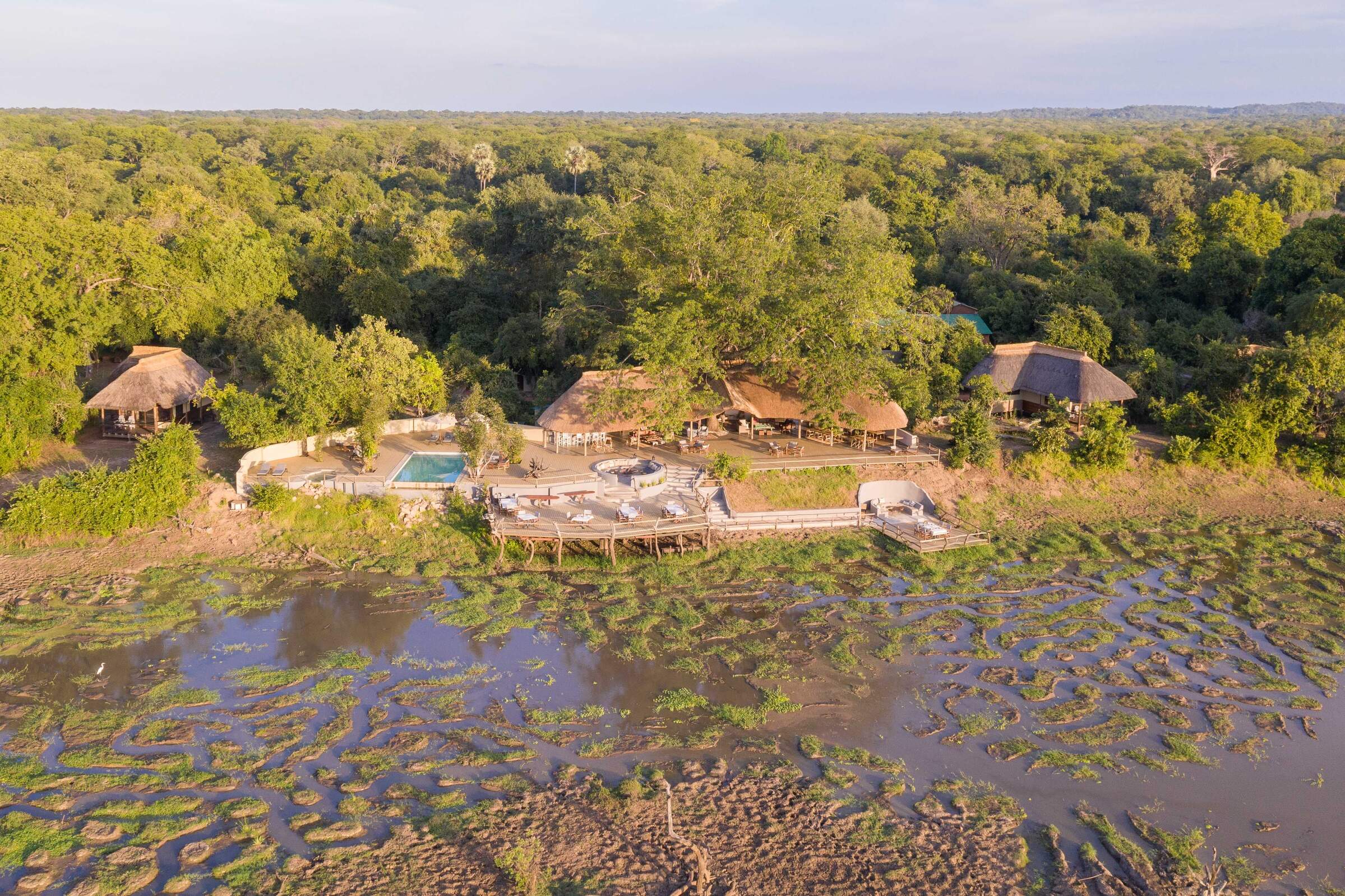
Kafunta River Lodge
Kafunta is a laid-back, friendly and good-value lodge on the outskirts of South Luangwa National Park.
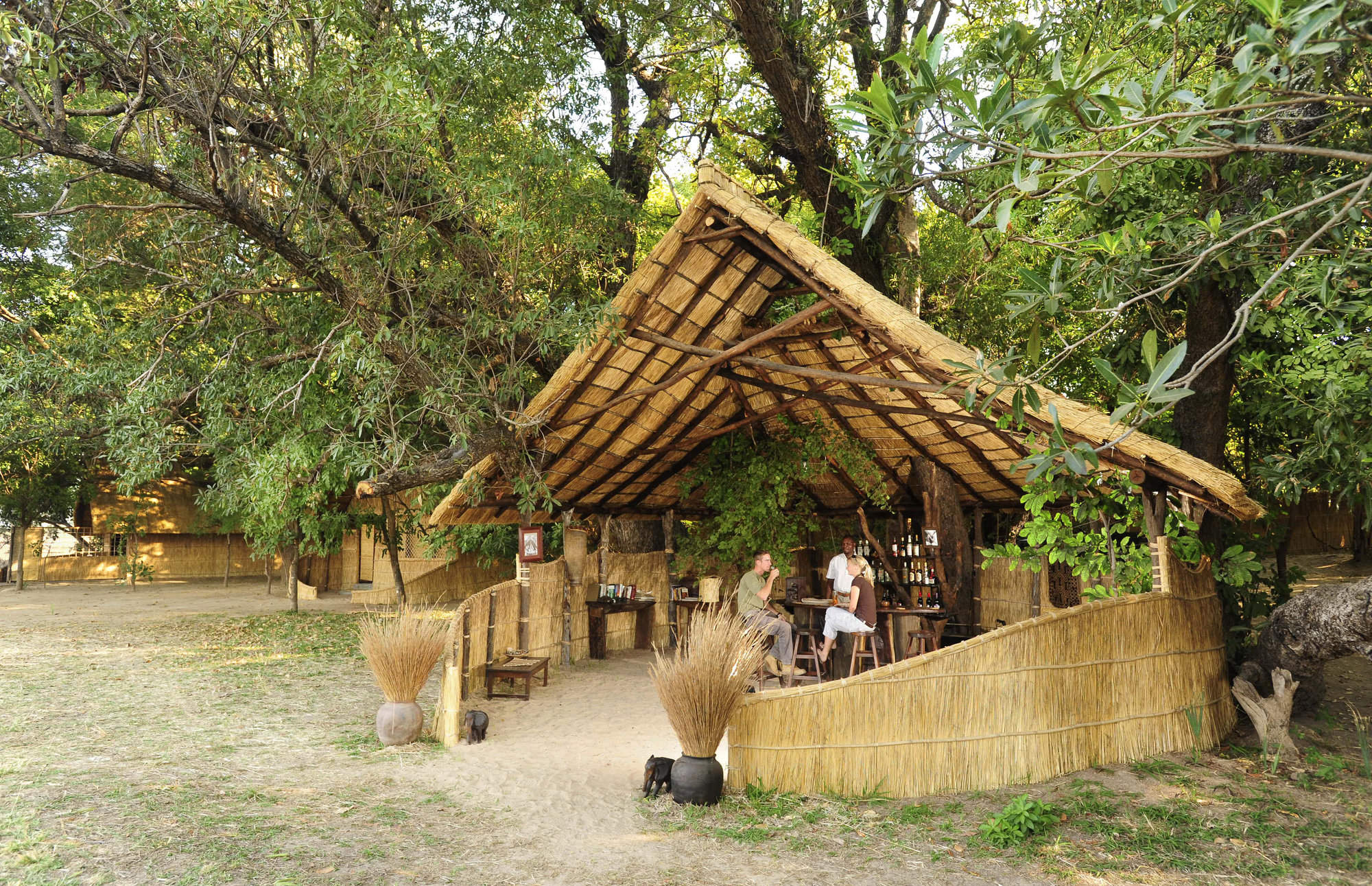
Luwi Bushcamp
In a remote part of the South Luangwa National Park, Luwi is a rustic bushcamp whose emphasis is on walking safaris with great guiding and a chance of seeing some rarely seen and elusive antelope.
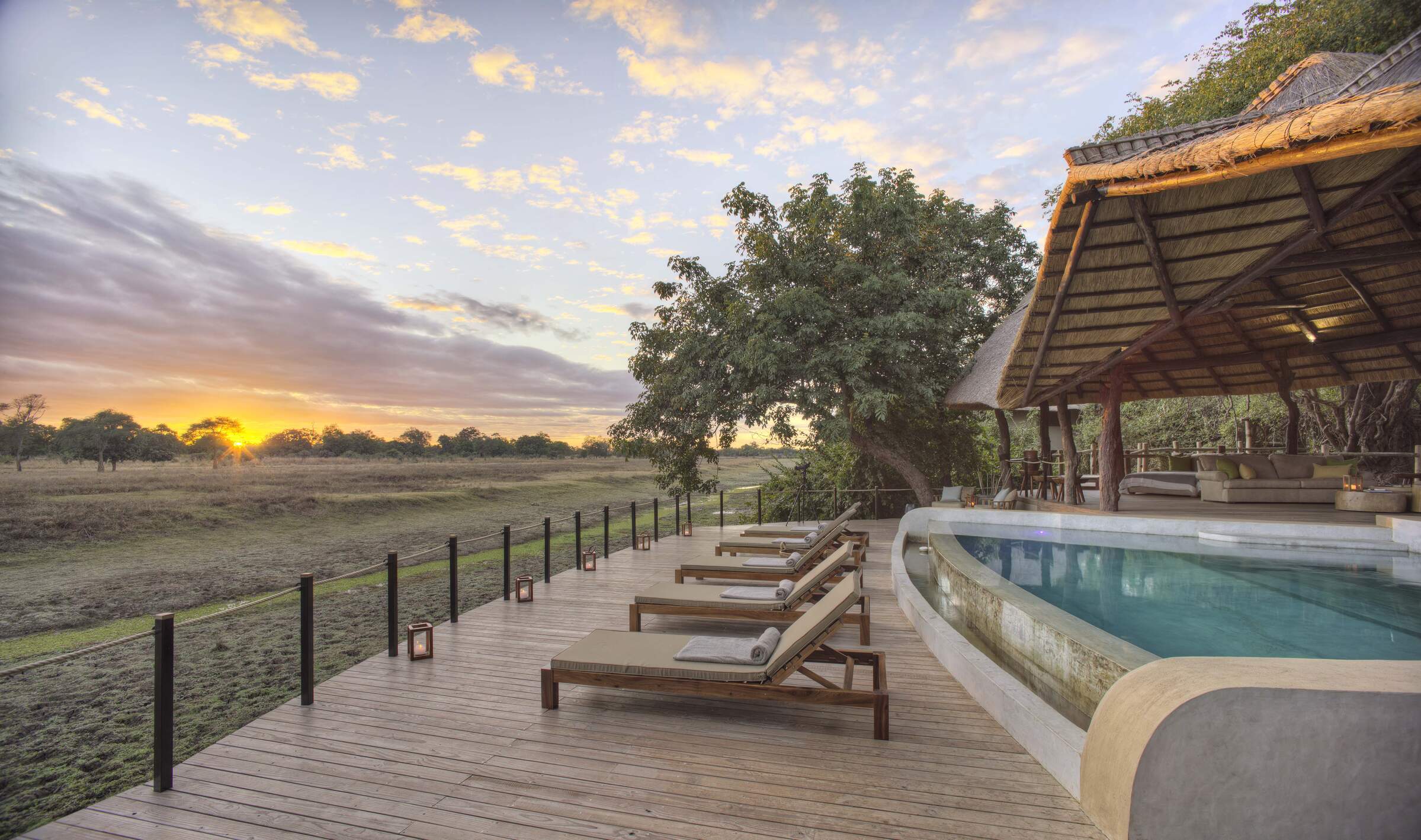
Lion Camp
Lion Camp is an established and comfortable camp with a swimming pool, located near to the game-rich Lion Plain in the northern part of South Luangwa National Park.
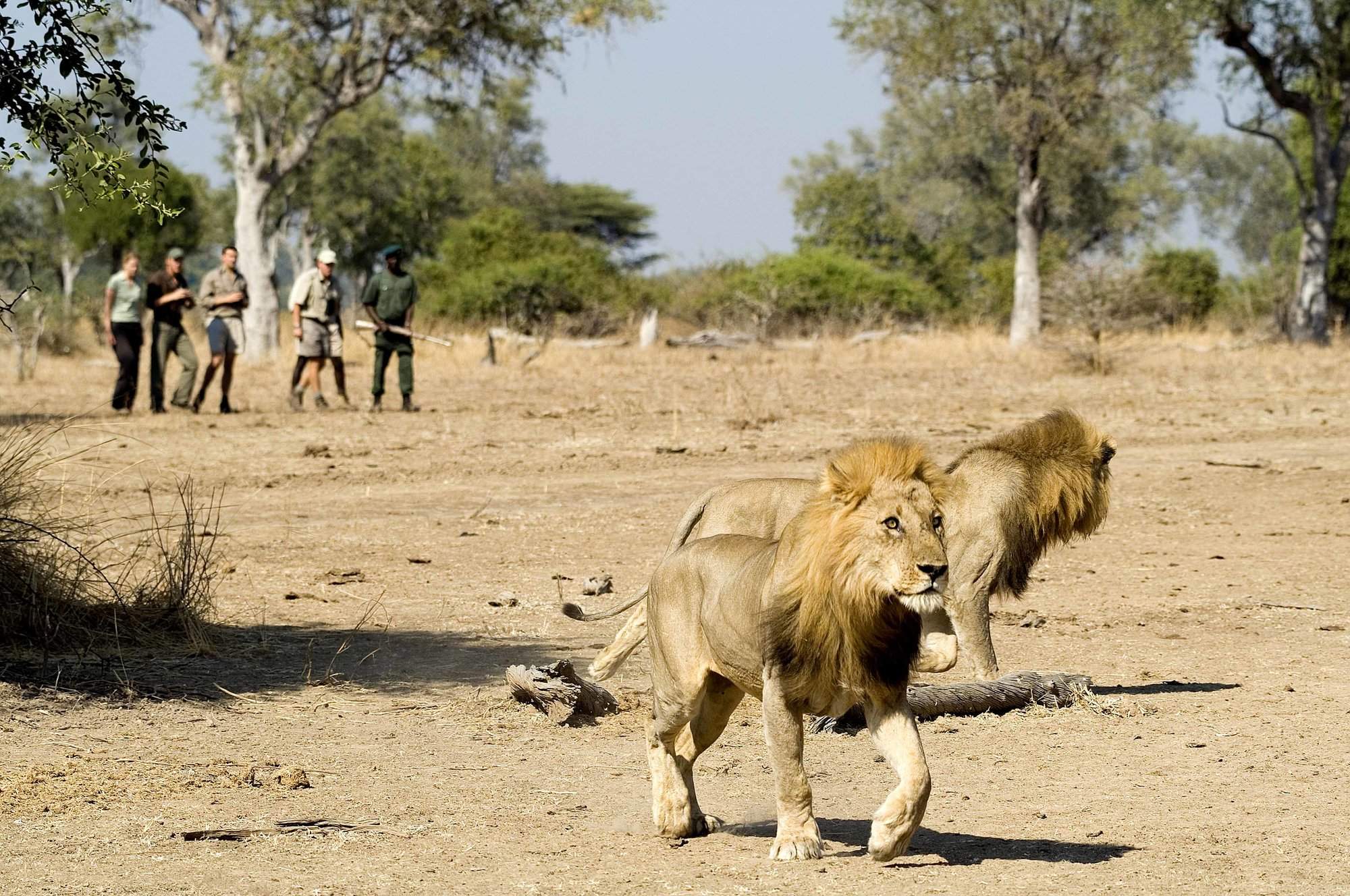
Robin Pope mobile
RPS mobile safari camps are at the heart of their set-itinerary walking safaris in South Luangwa National Park, which start and finish at a permanent camp.
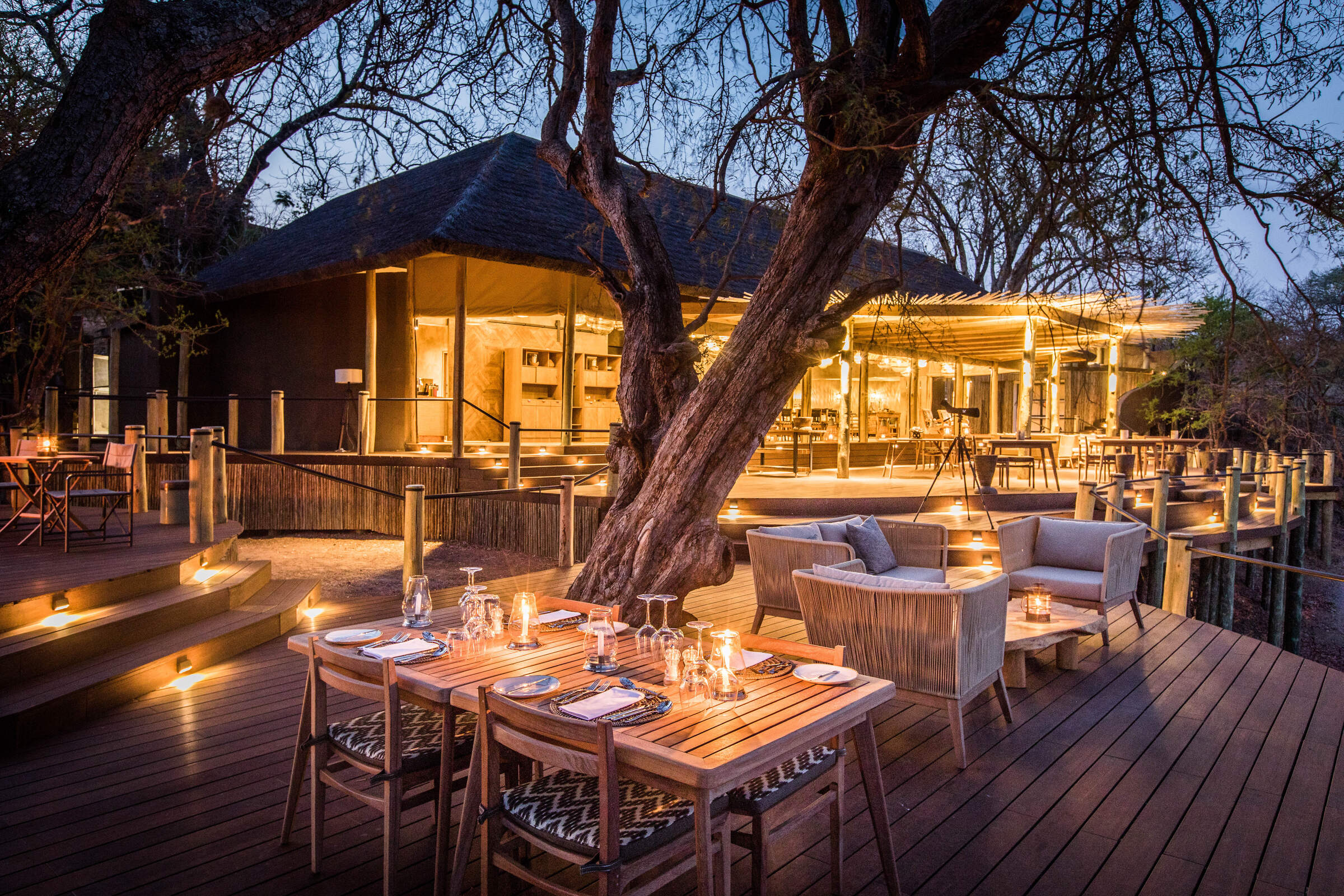
Puku Ridge
Puku Ridge is a luxurious designer camp set in a stunning location, high on a hill overlooking a floodplain within South Luangwa. Explore from here on 4WD safaris and walks.
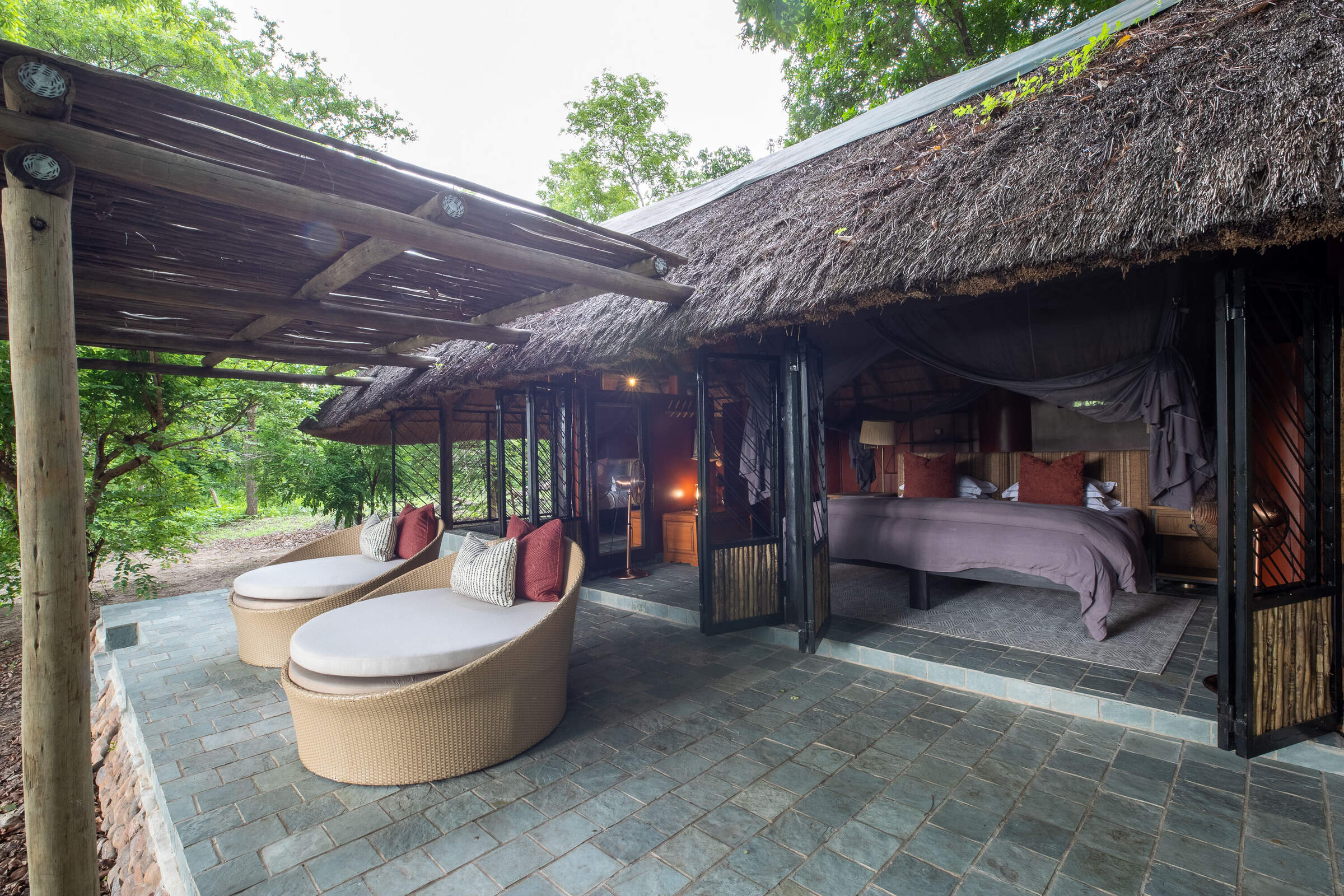
Kapamba Bushcamp
In the remote far south of South Luangwa National Park, Kapamba is a small and very comfortable bushcamp offering good walks and game drives.
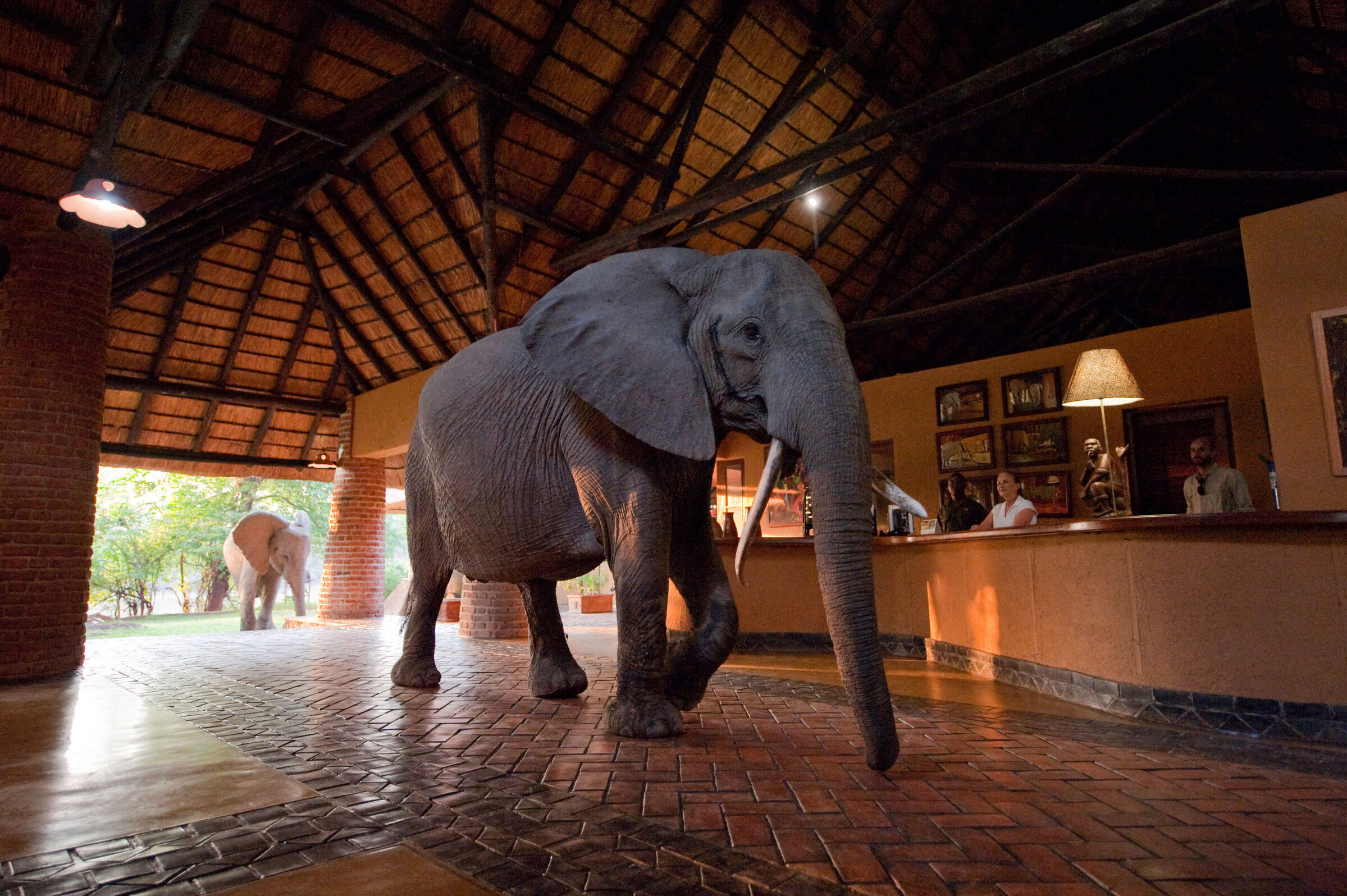
Mfuwe Lodge
In a game-rich area close to the South Luangwa’s main Mfuwe Gate, Mfuwe Lodge is relatively large by park standards, but it’s stylish, modern and family friendly.
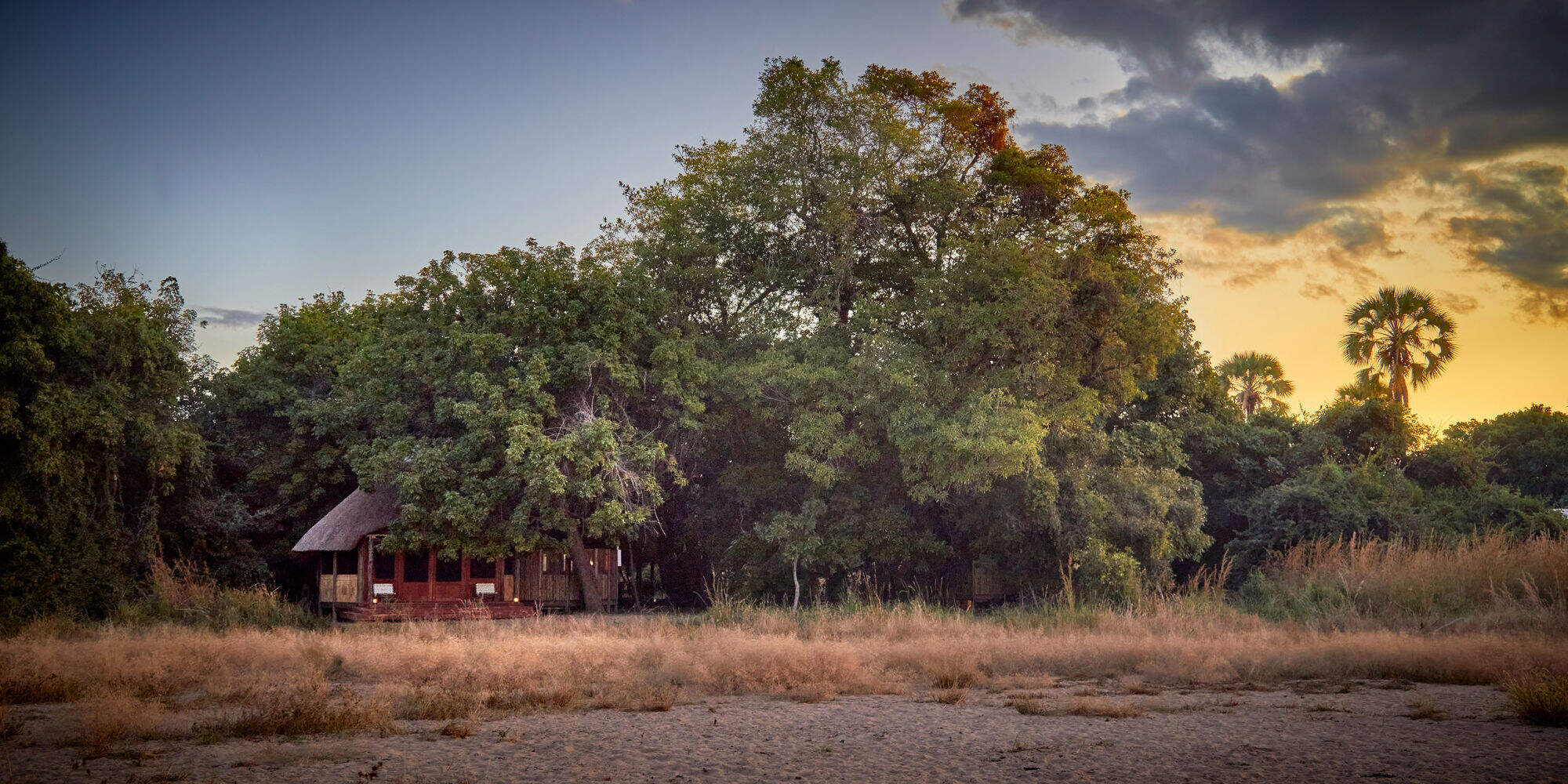
Kuyenda Bushcamp
Kuyenda Bushcamp is a classic bushcamp with particularly delightful hosts and offers top-class walking safaris in South Luangwa National Park.
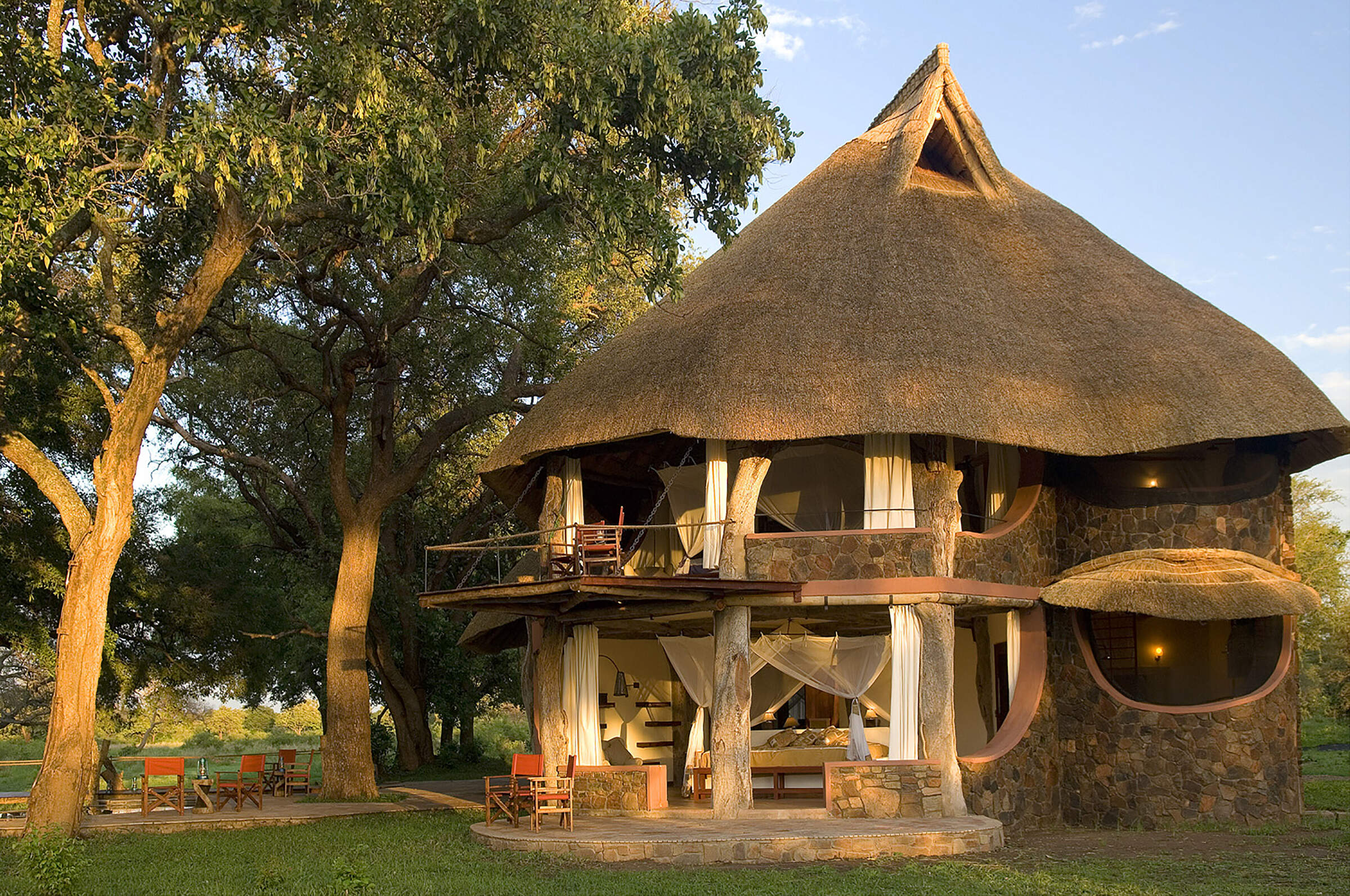
Luangwa Safari House
Luangwa Safari House is a vast and very smart four-bedroom house specifically designed for families and small groups, and offering an exclusive and flexible safari experience.
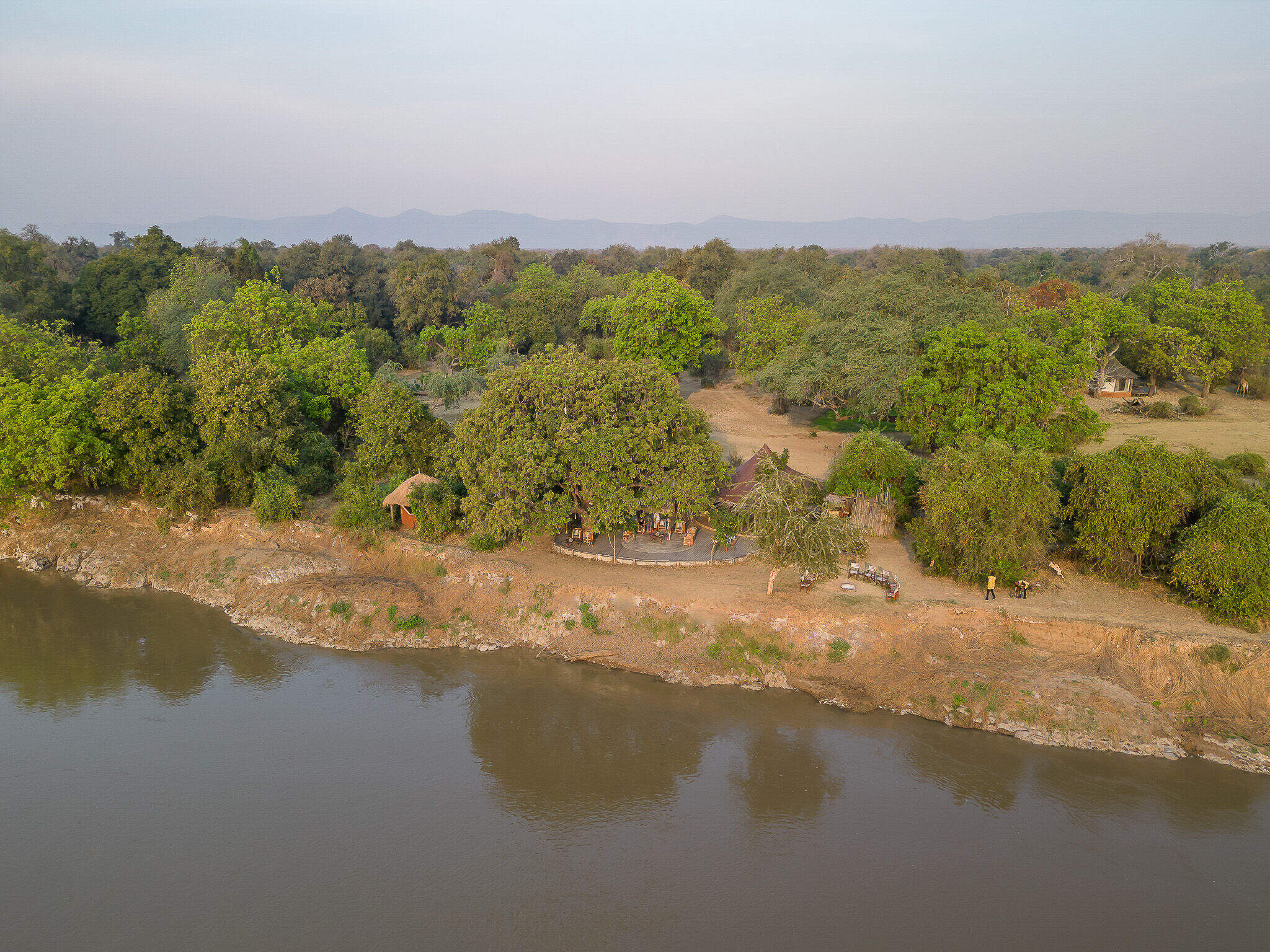
Three Rivers Camp
In the remote far south of South Luangwa National Park, Three Rivers Lodge sits at the confluence of three of the valleys rivers.
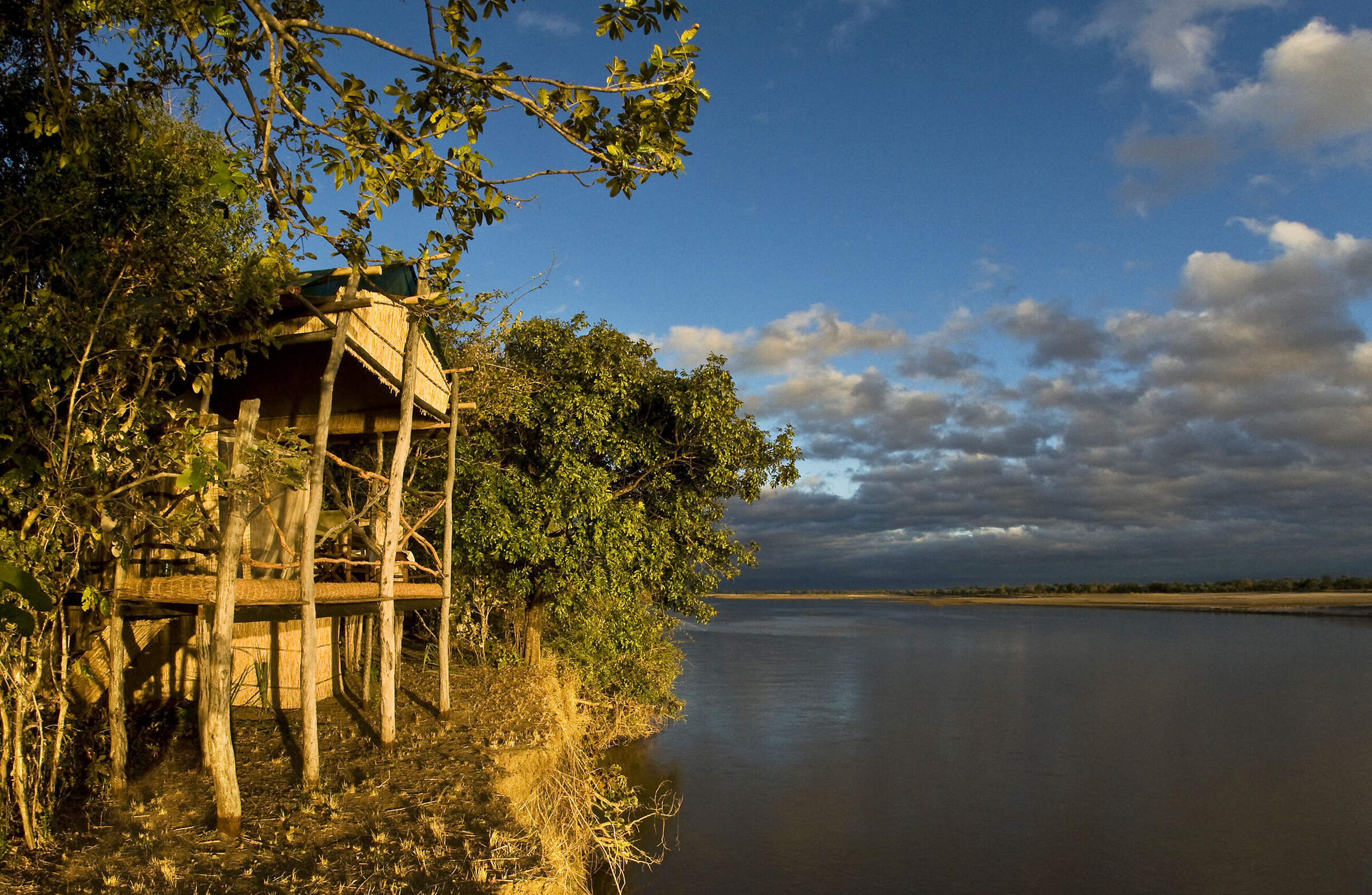
Island Bush Camp
Island Bushcamp is a good-value, rustic, walking-only camp, in arguably one of the most remote parts of the South Luangwa, well away from all other camps.
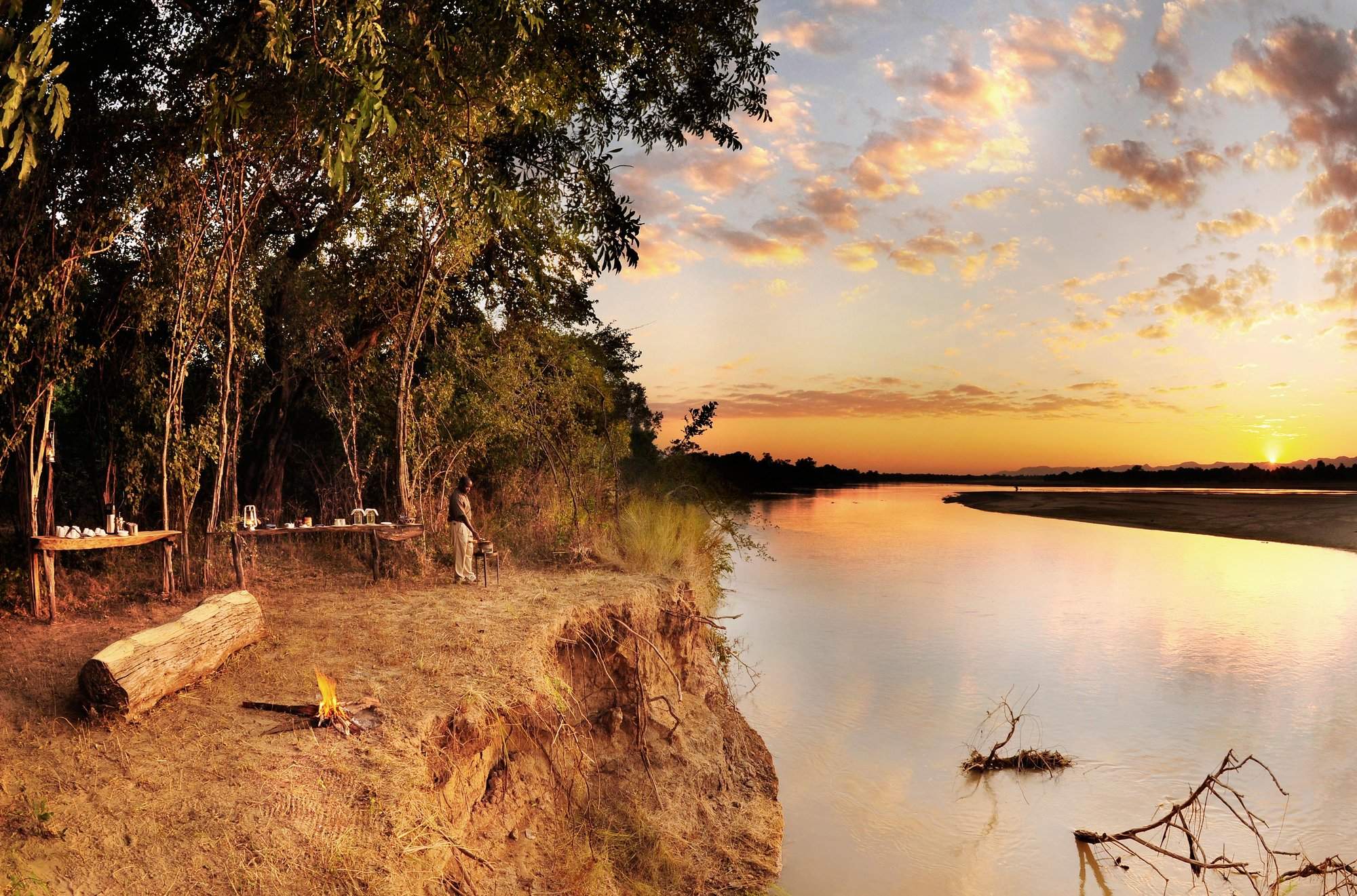
Bilimungwe Bushcamp
A smart bushcamp with four very spacious chalets, Bilimungwe offers interesting walking safaris in pretty riverine woodland, as well as day and night safari drives.
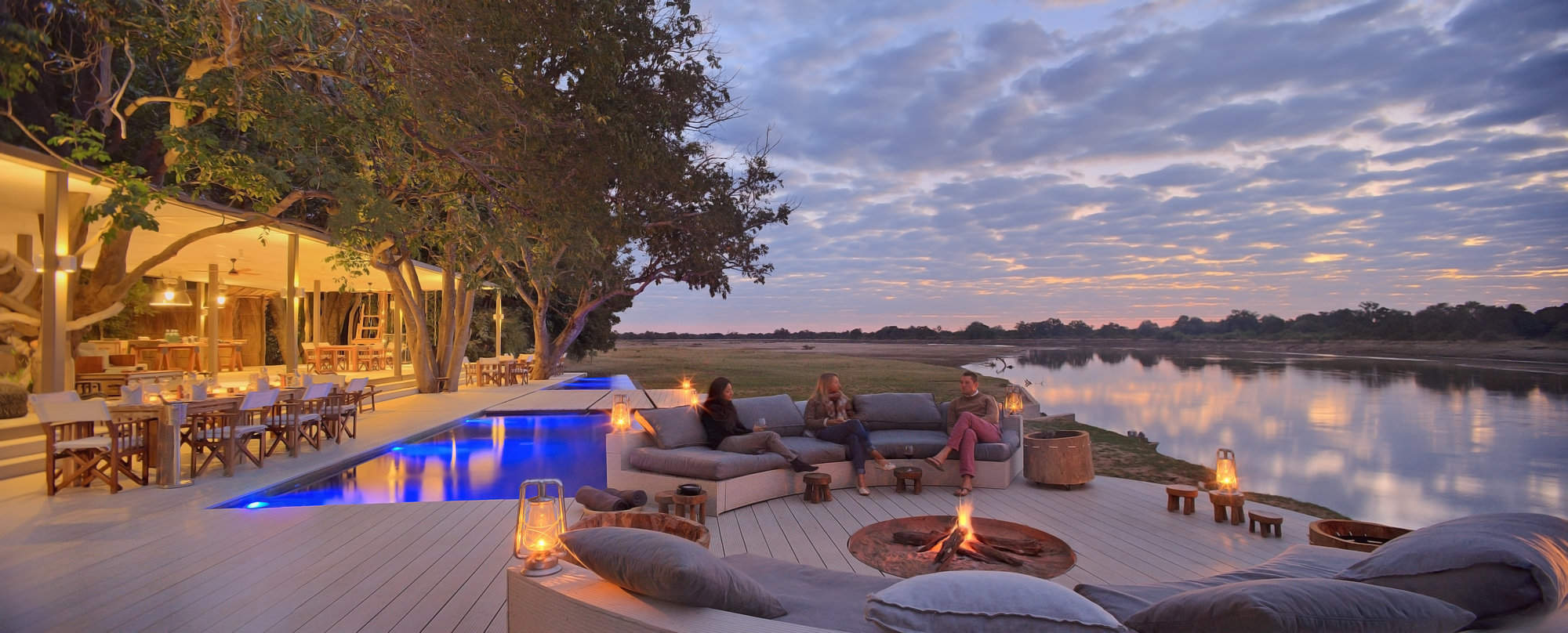
Chinzombo
Opened in early June 2013, Chinzombo offers luxurious and stylish accommodation with very high levels of service and excellent guiding.
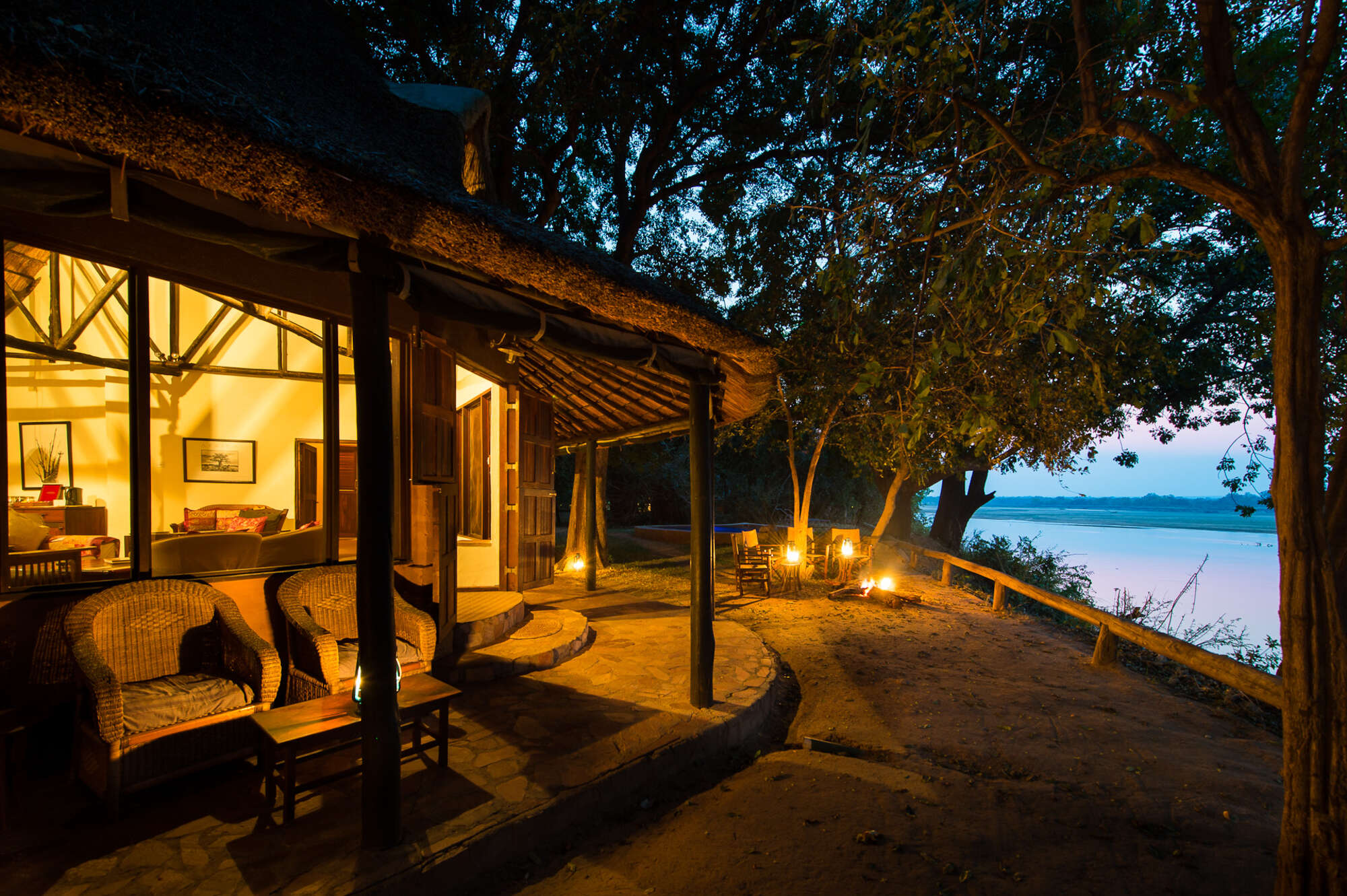
Robin's House
With your own expert guide, private vehicle, chef and valet, the two-bedroom Robin's House offers an exclusive, flexible safari experience – and is open year round.
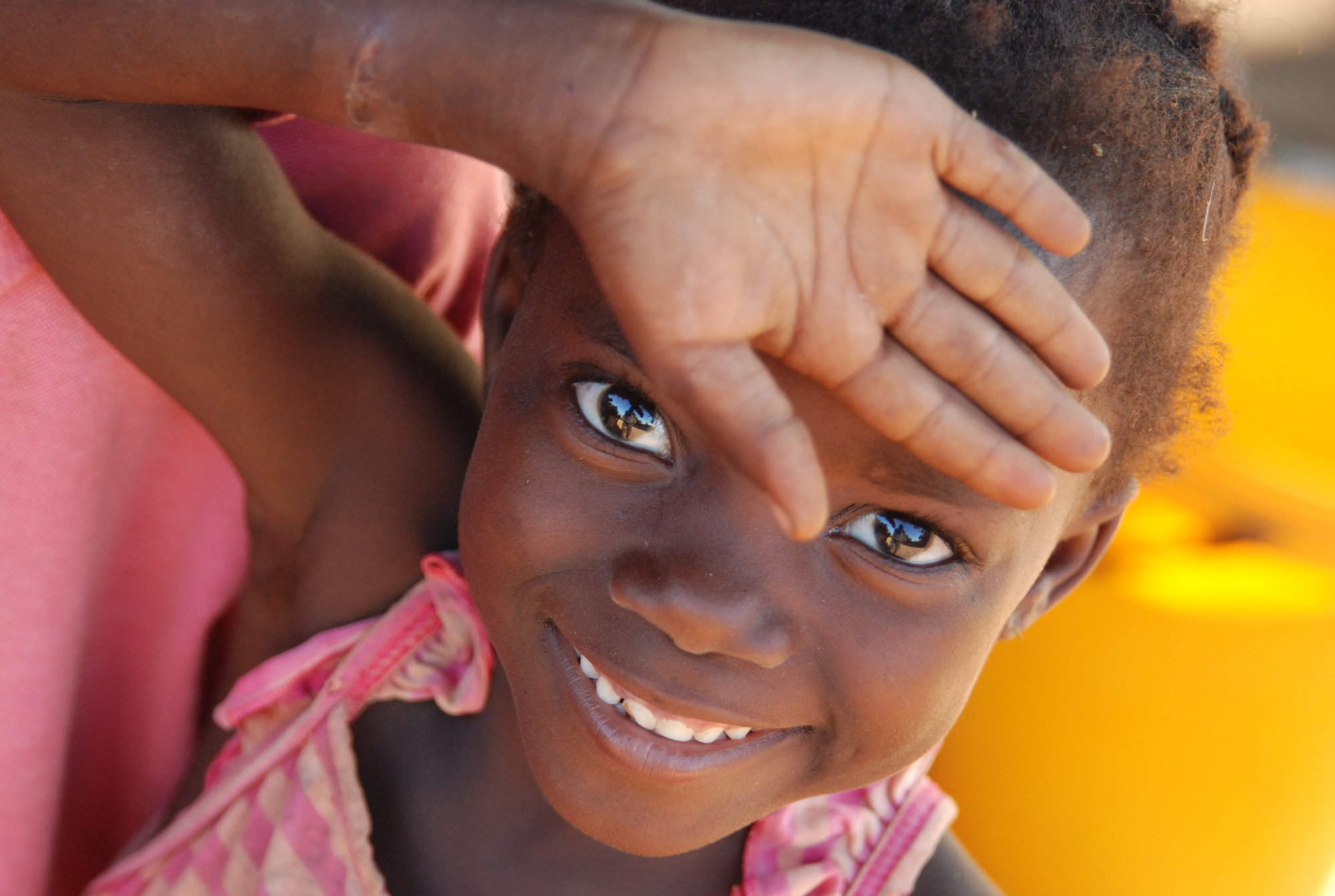
Kawaza Village
Kawaza Village – beside the South Luangwa National Park, offers guests the rare opportunity to appreciate local village life. Visit for a few hours or stay overnight.
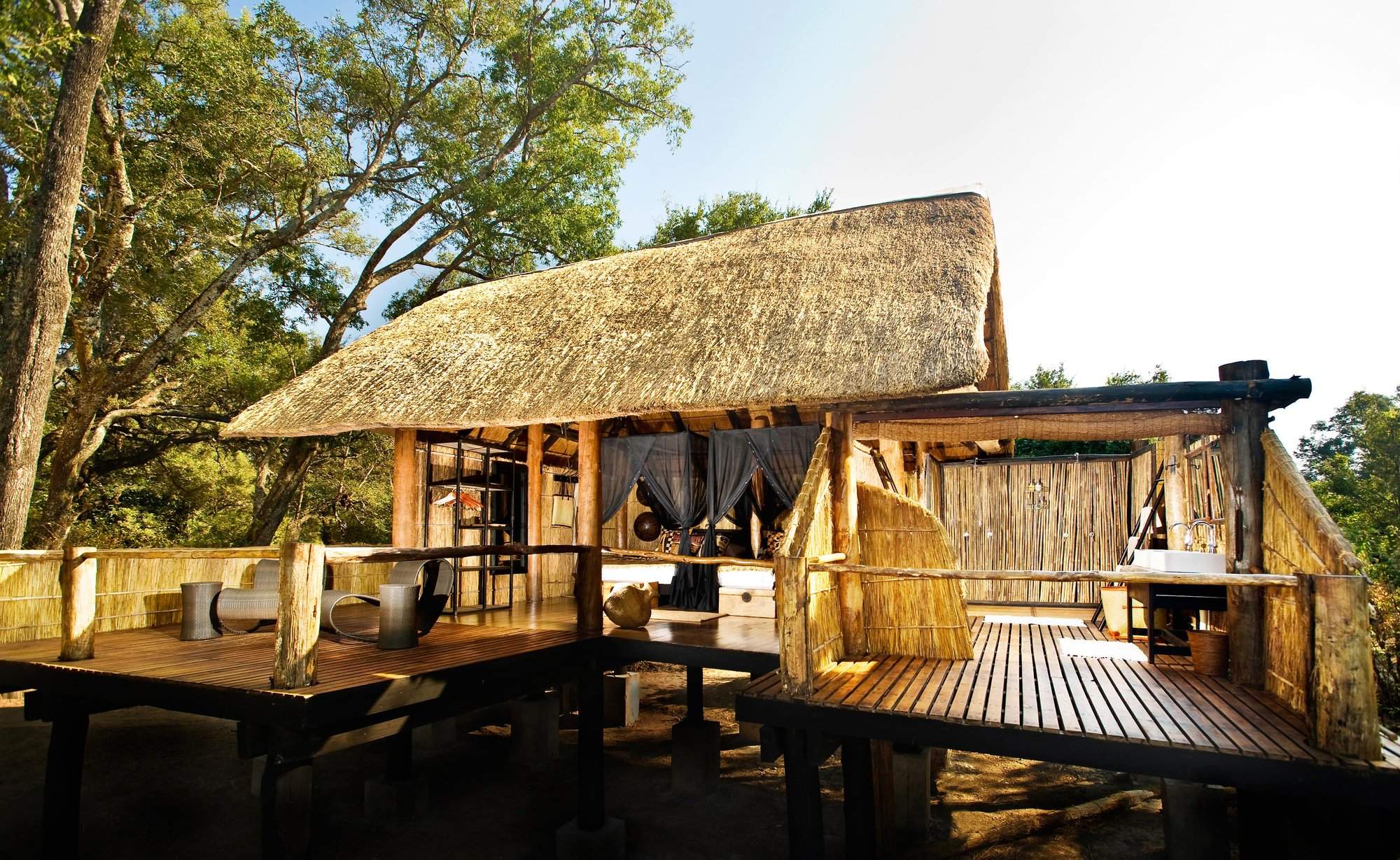
Chamilandu Bushcamp
A comfortable little bushcamp, Chamilandu has a picturesque setting by the Luangwa River, in an area with a range of habitats to explore on foot and by 4WD.
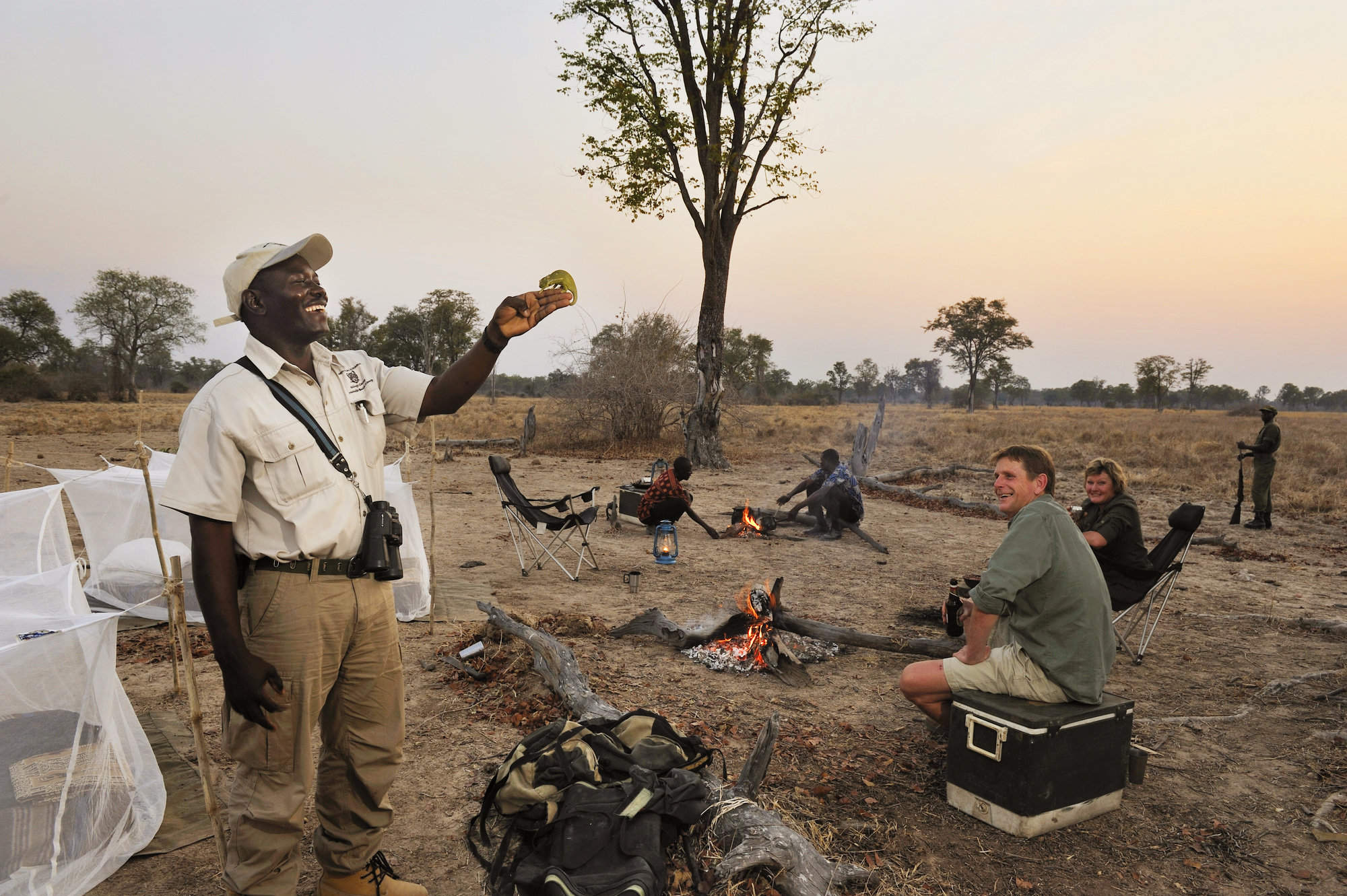
Mwamba Camp-out
The Mwamba-Camp Out allows you to have an incredibly adventurous night in the bush, sleeping under mosquito nets with activities led by some of the best guides in Zambia.
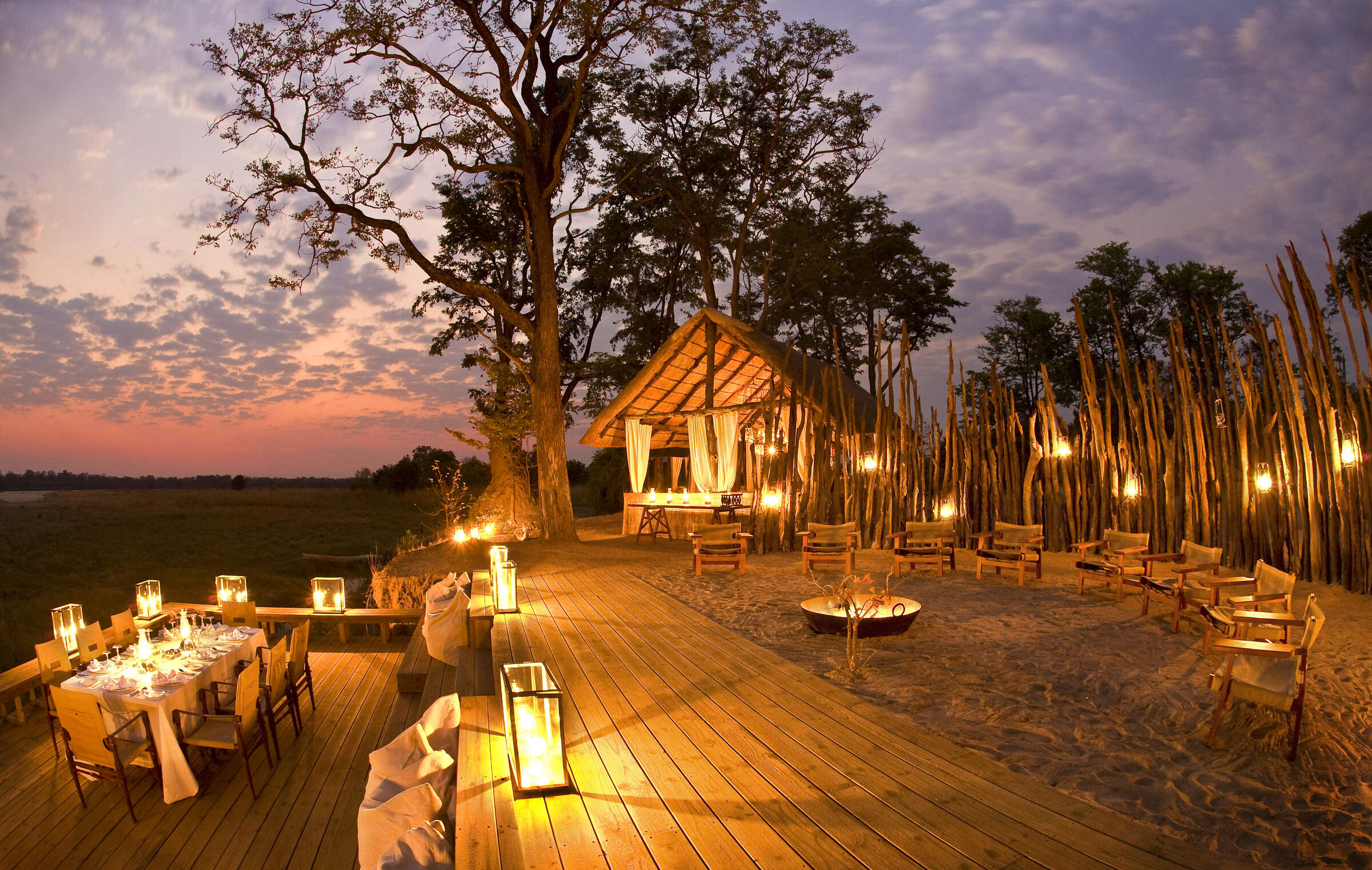
Zungulila
Zungulila is a small, comfortable tented bushcamp with an emphasis on walking safaris, in the remote southern section of the South Luangwa.
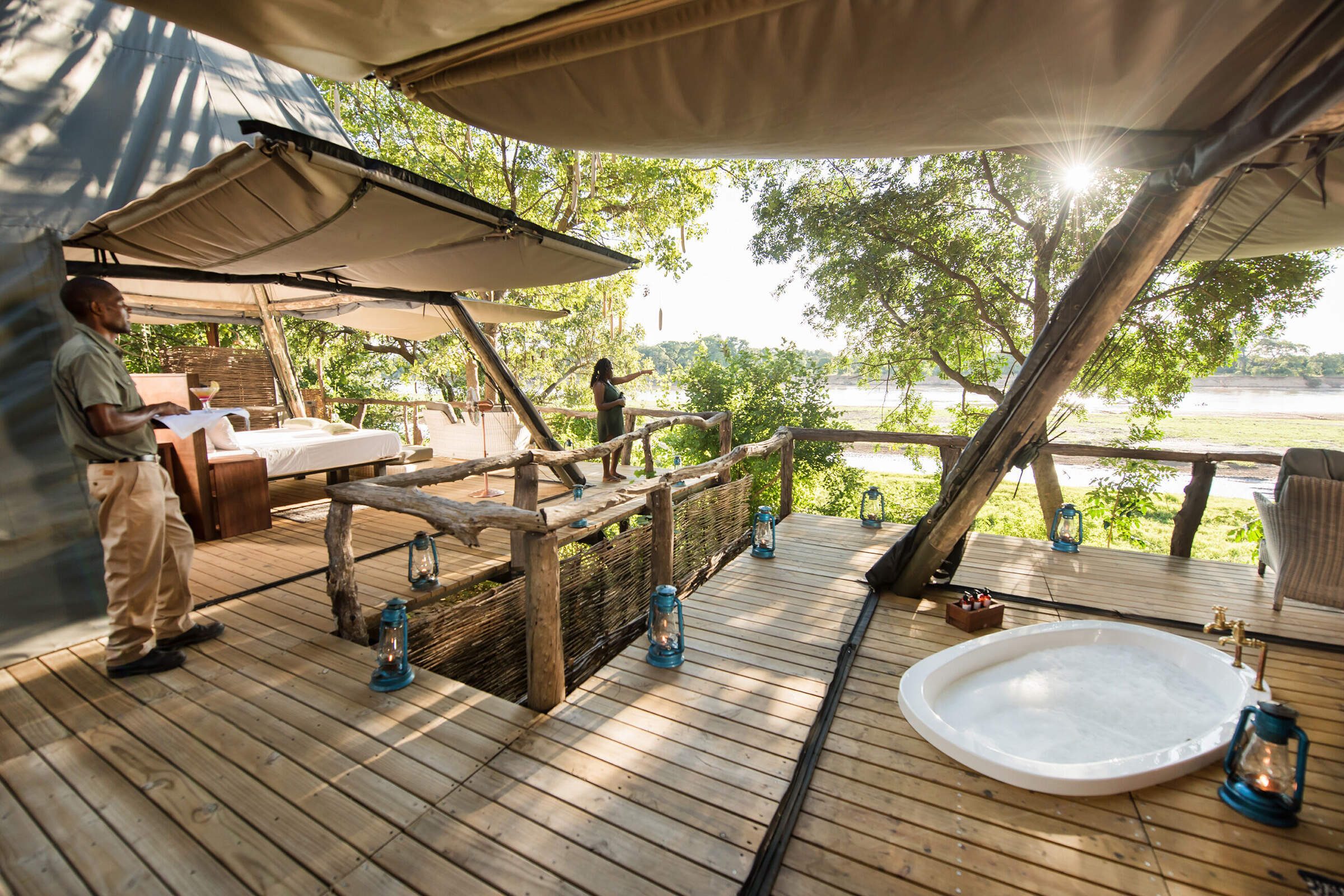
Shawa Luangwa
Opened in June 2021, Shawa Luangwa Camp is a small, intimate and rustic camp, with a good location in a remote section of the South Luangwa National Park.
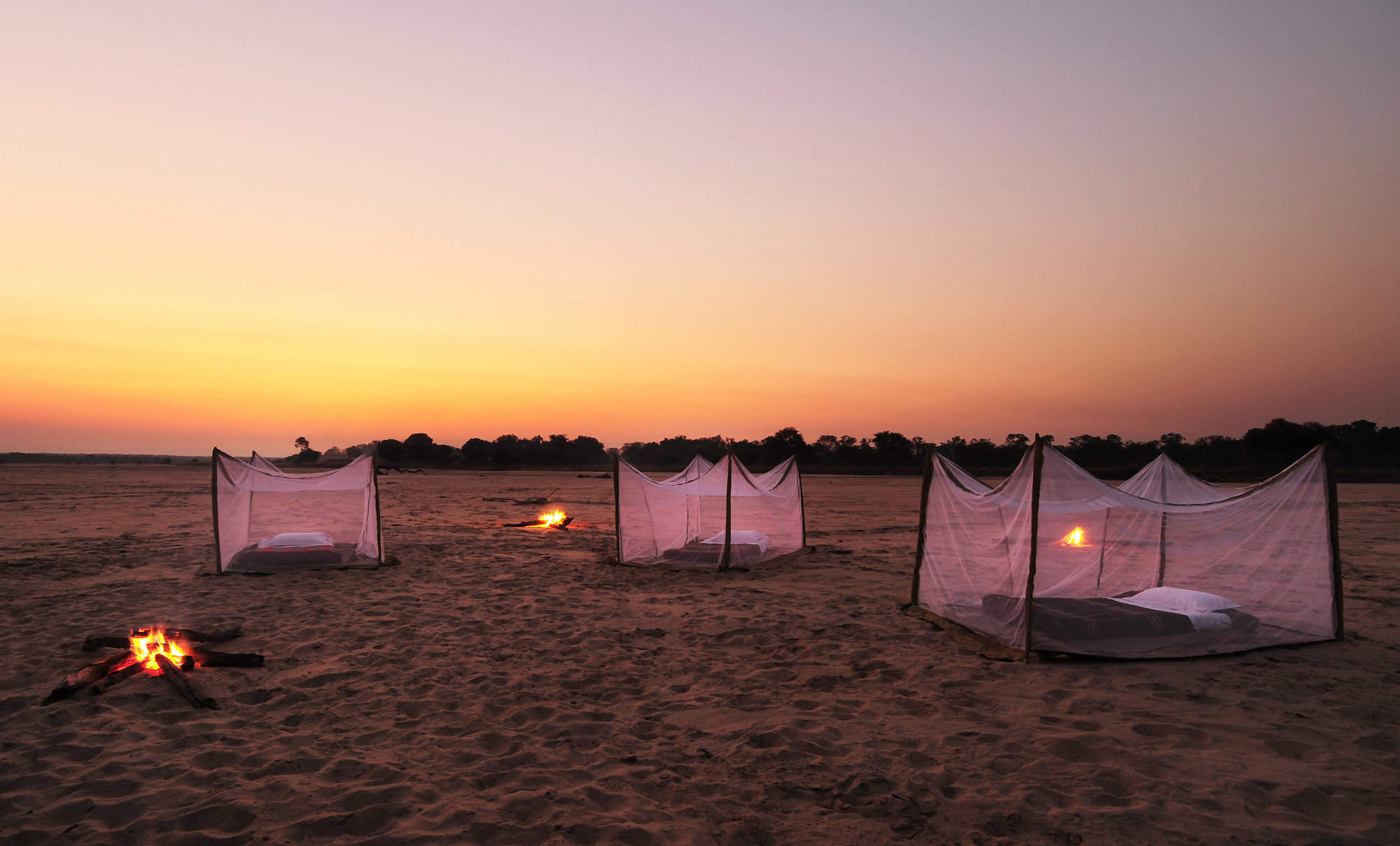
Luwi Riverbed Sleepout
For an adventurous night in South Luangwa National Park, come and sleep out in the bush, around a campfire, with an experienced guide and game scout.
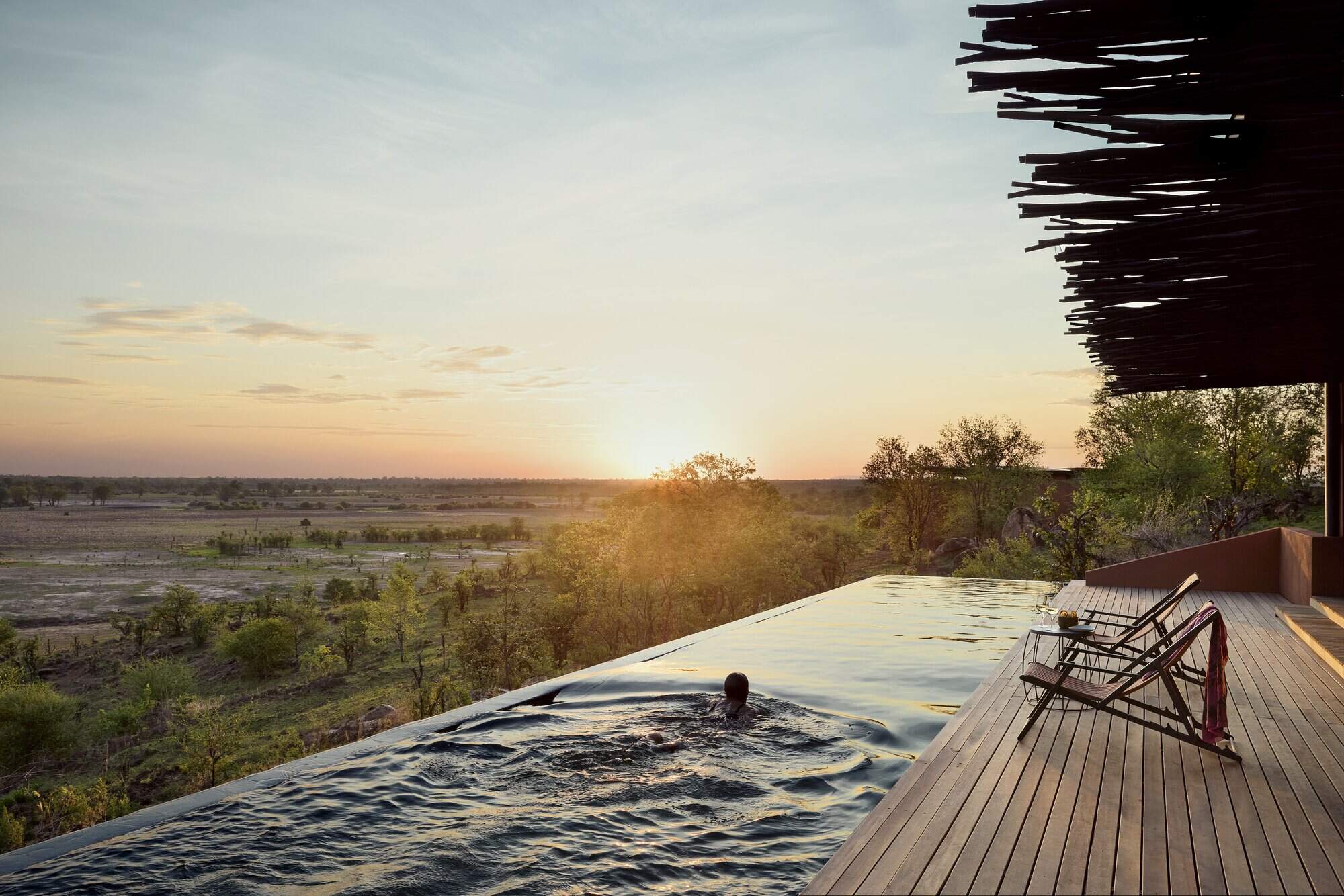
Chichele Lodge
Currently in the final stages of an extensive rebuild, Chichele Presidential Lodge stands high within the park, with superb views, and is due to reopen in early 2025.
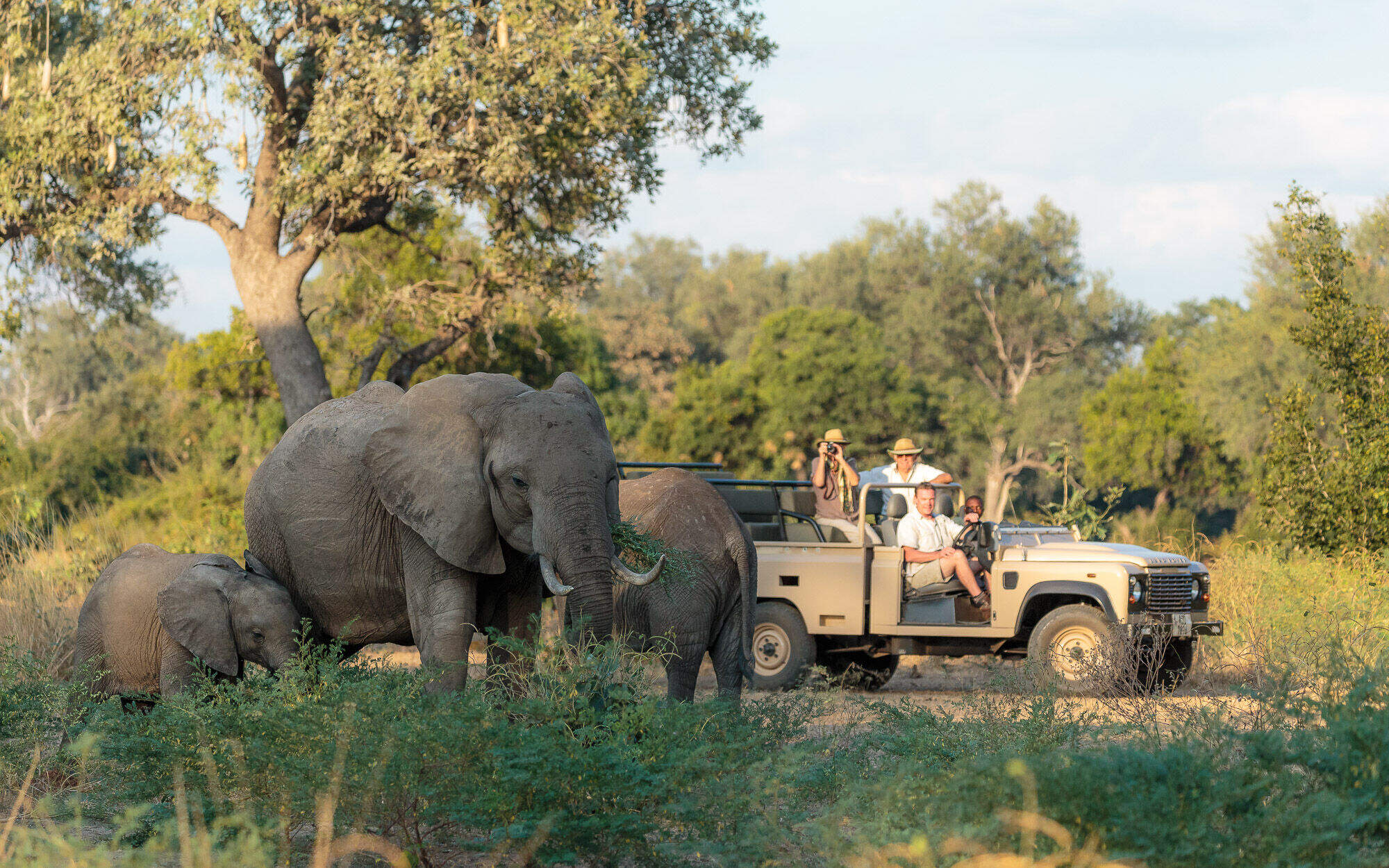
Nkonzi Camp
A simple and rustic bush camp, Nkonzi has a strong focus on walking safaris in this remote section of Zambia’s South Luangwa National Park.
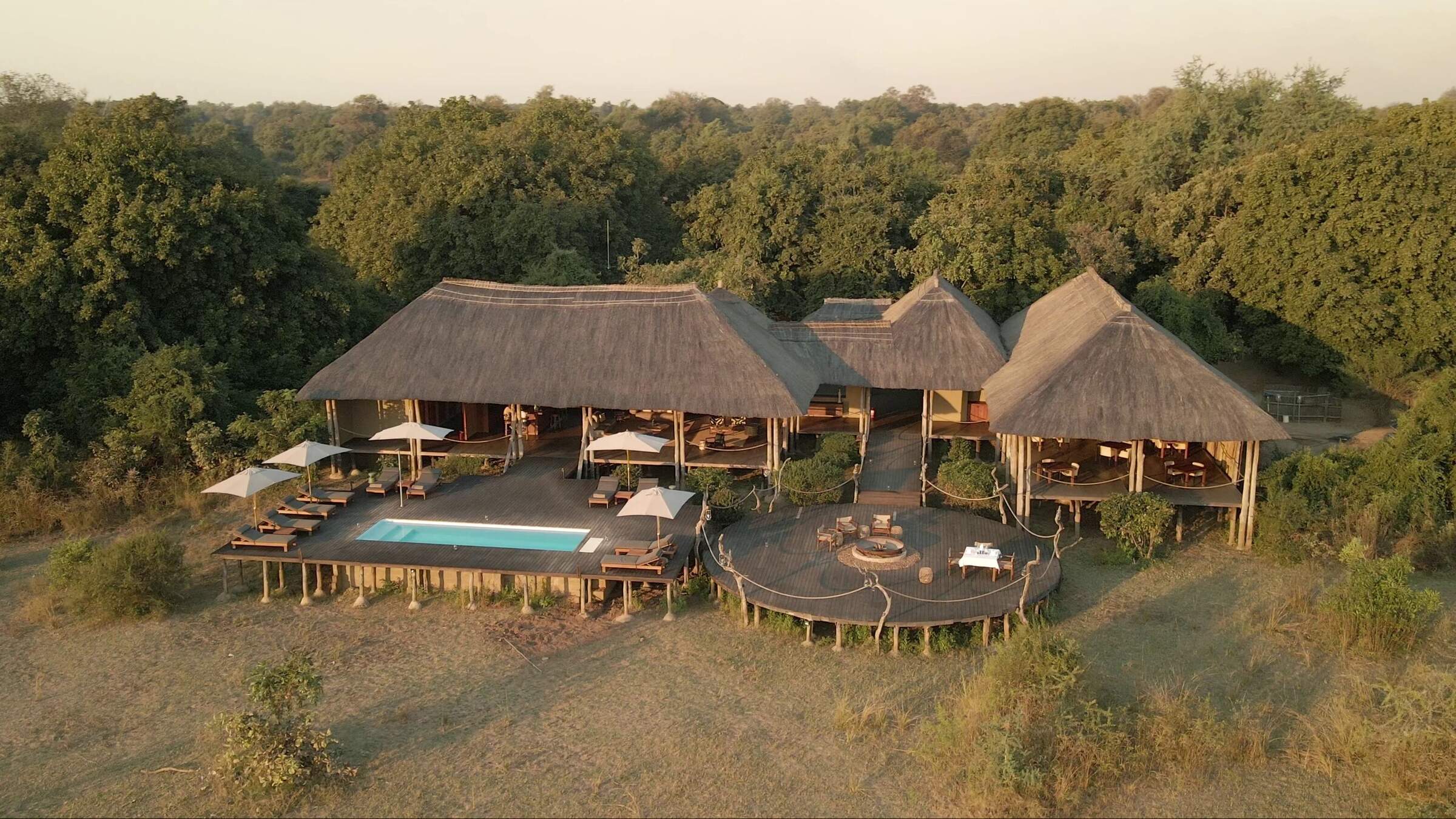
Chikunto
Chikunto Safari Lodge is a more traditional property in the South Luangwa National Park, sitting on a peninsula of land created by the meandering Luangwa River.
When to go to South Luangwa National Park
Our month by month guide: What it's like to visit Chindeni in South Luangwa National Park
Jan
Feb
Mar
Apr
May
Jun
Jul
Aug
Sep
Oct
Nov
Dec
South Luangwa National Park in January
January marks the height of the wet season in South Luangwa. Expect frequent downpours, often lasting a few hours, with intermittent sunny periods. The mercury regularly climbs above 30°C, accompanied by high humidity. The park's landscape is verdant and lush, with crystal-clear air.
However, the abundance of water causes most larger animals to disperse, and the thick vegetation can hinder game viewing. Walking safaris are largely impractical during this time. Migratory birds, many in breeding plumage, boost the area's avian diversity. Most lodges close and the few that remain open offer their lowest rates. Only the central network of all-weather roads is reliably passable for 4WD safaris. Low numbers of visitors ensuring a tranquil park experience for those who do visit.
- Wet season peak, frequent showers
- Most lodges and all bush-camps are closed
- Lush vegetation, ideal for photography
- Large wildlife is scattered, can be challenging to spot
- Few tourists, budget-friendly rates
Our view
This is not a great time to visit
Weather in January
South Luangwa National Park in February
February continues the ‘green season’ trend in South Luangwa National Park, with impressive thunderstorms delivering short bursts of rain most days, punctuated by clear skies. The park remains awash with water, affecting wildlife distribution and lodge operations.
Dense vegetation limits game viewing opportunities on safari and walking safaris aren’t usually possible. However, the swollen Luangwa River allows for unique boating experiences unavailable during drier months. Despite challenging conditions, patient visitors may be rewarded with sightings of animals caring for their young. The handful of operational lodges maintain low rates, and the park sees few visitors during this period.
- Continued wet season, regular downpours
- All bush-camps and most lodges are closed
- Verdant scenery, photogenic landscapes
- Game viewing challenging due to thick foliage
- Low visitor numbers, economical pricing
Our view
This is not a great time to visit
Weather in February
South Luangwa National Park in March
March signals the tail end of South Luangwa's rainy season, with heavy showers still frequent. Water levels peak, so driving off the park’s all-weather road network remains challenging. Daytime temperatures consistently exceed 30°C, with rain-induced humidity remaining high.
Most lodges are still closed, and thick vegetation continues to impact game viewing and walking safaris. However, this period can offer exceptional sightings of animals with their offspring, and predator activity often increases. Wild dogs have historically been particularly active in the park during this time. The combination of clear air and increasingly blue skies provides excellent photographic opportunities. Birdwatching remains superb as migratory species prepare for their winter journey.
- Wet season persists, intermittent rain
- Many lodges remain closed
- Abundant greenery, picturesque settings
- Young animals plentiful, but hard to see
- Minimal crowds, cost-effective travel
Our view
This is not a great time to visit
Weather in March
South Luangwa National Park in April
April represents a transitional period in South Luangwa National Park as the rains shift from intense downpours to lighter, less frequent showers. The park's scenery remains incredibly green and vibrant, though larger wildlife can be harder to spot on safaris.
Some lodges begin to reopen while seasonal bushcamps remain closed as they prepare for the upcoming dry season. The Luangwa River reaches often its highest level in April, creating a spectacular sight. Despite the challenges, this period can offer unique experiences for those willing to brave the unpredictable conditions – and accept a greatly reduced choice of places to stay.
- Wet season waning, occasional showers
- Some lodges begin reopening
- Landscape still lush, great for photographers
- Wildlife viewing slowly improving
- Few visitors, attractive off-season rates
Our view
This is not a great time to visit
Weather in April
South Luangwa National Park in May
May is a lovely month; it typically heralds the start of the dry season in South Luangwa. While occasional showers may occur, most days are clear and sunny. As winter approaches, temperatures begin to drop, with daytime highs around 26°C.
The drying landscape improves access within the park, and most lodges reopen. Some standing water remains, but game viewing noticeably improves as the vegetation thins out. The clear air continues to benefit photographers. Late May is very popular among the Luangwa’s ‘safari regulars’ who seek to capitalise on good weather, improved wildlife sightings, newly-opened camps (including some seasonal bush-camps) and the final weeks of low-season rates at many lodges.
- Dry season onset, clearer skies
- Most lodges and some bush-camps operational
- Vegetation still green, crisp air
- Game viewing conditions improving
- Last month for lower accommodation prices
Our view
A good time to visit, with pros & cons
Weather in May
South Luangwa National Park in June
June in South Luangwa National Park is characterised by virtually rainless days and abundant sunshine. Humidity levels plummet, and winter's approach brings cooler temperatures, with nighttime lows around 10°C and daytime highs of 25°C.
The landscape remains lush, but the thinning vegetation significantly enhances visibility for game viewing, the conditions are ideal for walking safaris. All the lodges and bushcamps in the park are operational by early June. While some offer shoulder season rates, others are already running with high-season pricing. Wildlife begins to concentrate around water sources, setting the stage for excellent game viewing in the coming months.
- Consistently sunny, cooler nights
- All South Luangwa lodges open
- Wildlife sightings becoming more frequent
- Ideal conditions for walking safaris
- Viewing of the Victoria Falls at its best
Our view
A very good time to visit
Weather in June
South Luangwa National Park in July
As the dry season progresses in South Luangwa, July sees vegetation and grasses dying back, with water becoming increasingly scarce. Wildlife congregates around remaining water sources, most notably along the Luangwa River, leading to excellent game viewing opportunities.
July marks the heart of winter, with daytime temperatures in the 20s Celsius, whilst nighttime lows can drop to single digits. Early morning and late evening game drives can be particularly chilly, with lodges often providing blankets and hot water bottles. Bring your hats, coats and gloves! Visitor numbers rise significantly, and space at popular small camps can become limited. Nearly all properties now charge their highest rates.
- Warm days, chilly evenings
- Game viewing notably improved
- Excellent visibility for walking safaris
- High season prices for most camps and lodges
- Comfortable daytime temperatures
Our view
A very good time to visit
Weather in July
South Luangwa National Park in August
August in the national park offers some of the year's best game viewing opportunities. South Luangwa’s vegetation has largely died back, and wildlife clusters around remaining water sources.
Rain is extremely unlikely, with sunny days largely guaranteed, though a haze may sometimes appear on the horizon due to dust and smoke in the air. Nighttime temperatures can dip below 5°C, but daytime highs reach the 20s Celsius. Warm clothing is essential for morning and evening drives. This is one of the most popular months to visit the park for a safari, with lodges and camps charging peak rates and often booking up far in advance.
- Very dry warm days and cold nights
- Prime wildlife viewing near water sources
- Perfect weather for walking safaris
- Peak season means highest prices
- Some haze may affect photography
Our view
Fantastic: the very best time to visit
Weather in August
South Luangwa National Park in September
September is arguably the very best time to visit South Luangwa National Park. It probably hasn’t rained for many months, humidity is low, and temperatures are just beginning to climb.
Mornings are more comfortable for 4WD safaris, rising to daytime typical highs in the low 30s Celsius. Water scarcity forces the wildlife to congregate around remaining sources, particularly around the Luangwa River, where most of the camps and lodges are situated. There high game densities lead to increased chances of inter-species interactions. It’s peak season for lodges and camps charge which are often fully booked. A little haze may affect long-distance views and photography. The Luangwa River's water levels continue to drop, concentrating hippos and crocodiles life in the remaining stretches.
- Dry and hot, clear skies
- Exceptional month for wildlife observation
- Landscape sometimes hazy due to dust and smoke
- Peak season, lodges often fully booked
- Higher prices for accommodation
Our view
Fantastic: the very best time to visit
Weather in September
South Luangwa National Park in October
October sees the dry season peak in South Luangwa at its most intense, with the landscape increasing parched. Occasional showers may occur as the promise of rain approaches. Temperatures can soar above 40°C during the day, rarely dropping below 20°C at night.
This heat can be draining, so walking safaris will set off early in the morning to beat the heat and sitting in an open 4WD on safaris can feel like facing a large hair-drier. Heat-haze and smoke may obscure the horizon as the Luangwa River becomes a series of pools, crowded with hippos and crocodiles. Other wildlife cautiously approaches these water sources, leading to thrilling predator-prey interactions. Game viewing is at its absolute best with the best chance of witnessing hunts.
- Optimal wildlife viewing conditions
- Very hot days and nights
- Dusty, hazy atmosphere is challenging for photos
- Some lodges start lowering their rates
- Less crowded than previous months
Our view
A very good time to visit
Weather in October
South Luangwa National Park in November
November typically witnesses the end of the dry season in South Luangwa. While the onset of rains is unpredictable, temperatures remain consistently high and humidity builds as the wet season approaches.
Early November may still be dry, but spectacular thunderstorms usually arrive, often later in the month, triggering rapid green growth when they do come – and an explosion of life from insects and smaller animals. Everything seems to come to life! When pools of water becomes more readily available away from the Luangwa River the wildlife quickly disperses. Some camps and all the seasonal bush-camps camps close; those that remain open reduce their rates. The rains quickly clear the air of dust and smoke, improving visibility and photographic conditions.
- Unpredictable month: depends on the rains
- Hot and humid – then the set season begins
- Wildlife dispersing as vegetation thickens
- Lower accommodation rates, fewer tourists
- Improved conditions for landscape photography
Our view
A good time to visit, with pros & cons
Weather in November
South Luangwa National Park in December
December usually marks the first full month of South Luangwa's wet season. Heavy thunderstorms become frequent, interspersed with sunny intervals. Daytime temperatures often exceed 30°C, accompanied by high humidity.
The rainfall transforms the landscape, encouraging lush vegetation growth. It’s a time renewal when insects, birds and smaller wildlife abound. While the larger species of wildlife remains in the park, wildlife viewing becomes more challenging due to the thick greenery and dispersed animal populations. Many lodges and all seasonal bush-camps are now closed as access to the park’s outlying areas becomes difficult. The few lodges that remain open offer lower rates and see few visitors. The rains clear the air, restoring vibrant blue skies and crystal-clear air which delights photographers.
- Rainy season in full swing
- Most lodges closed or offering low rates
- Wildlife harder to spot in thick vegetation
- Few visitors, budget-friendly period
- Lush green scenery, very photogenic landscapes
Our view
This is not a great time to visit
Weather in December

Looking for inspiration on where to travel next?
Visit our trip chooser to explore your options and find inspiration for your perfect African adventure
Inspire me